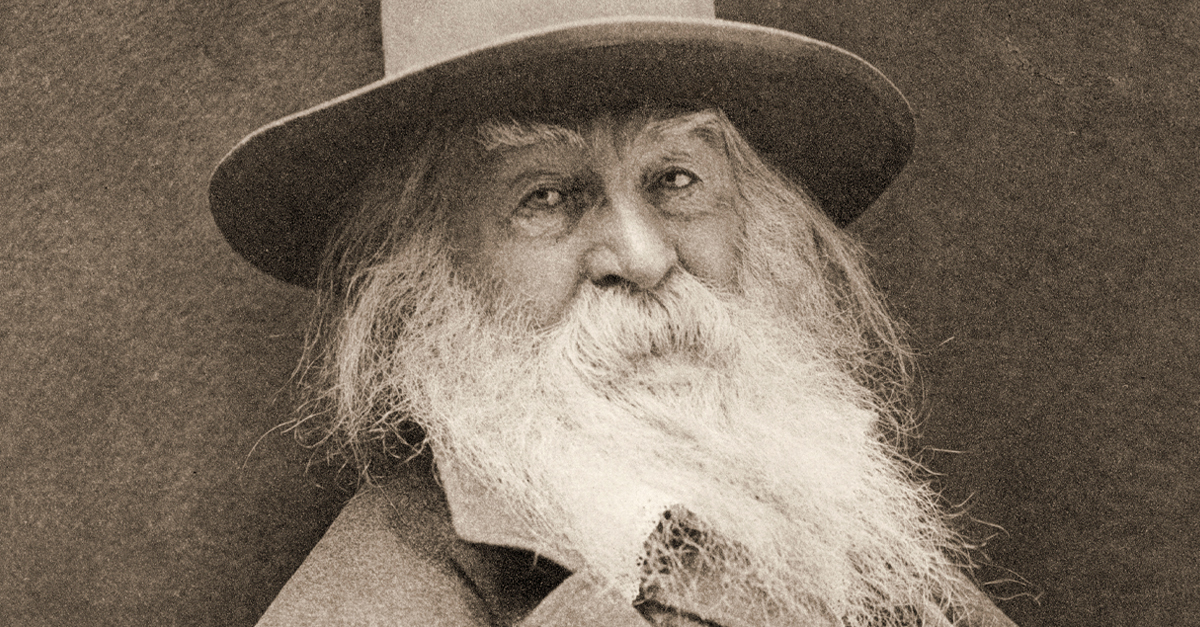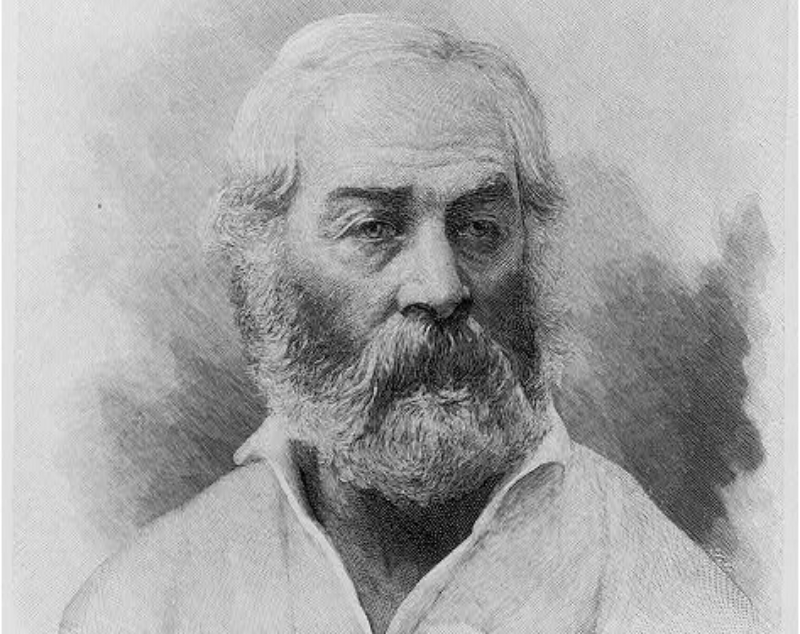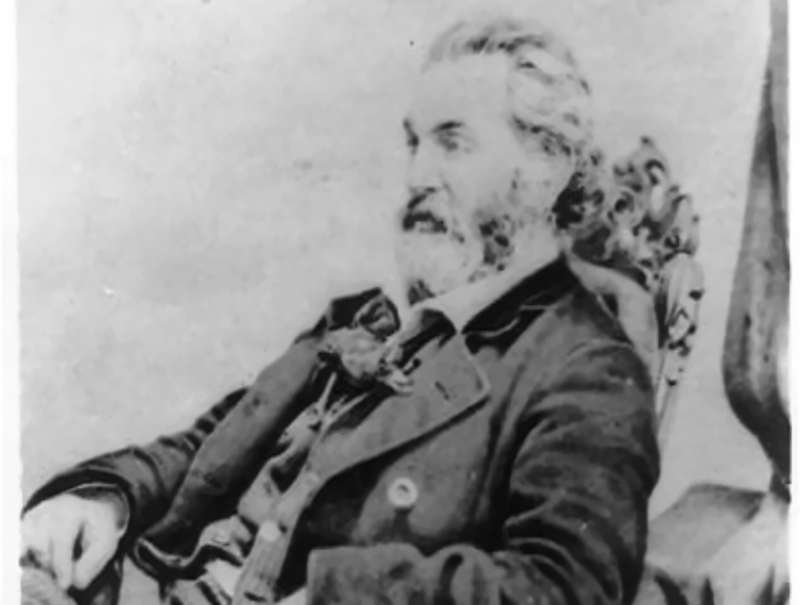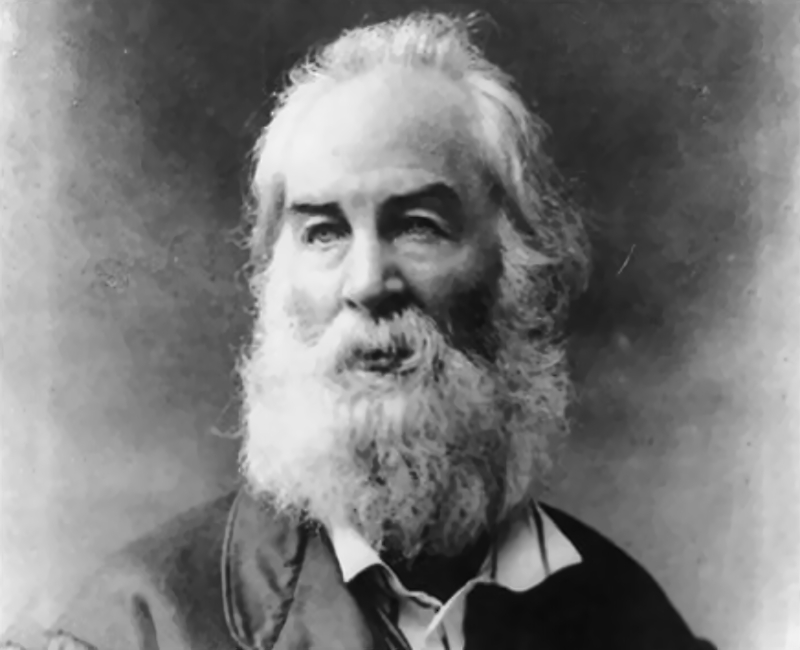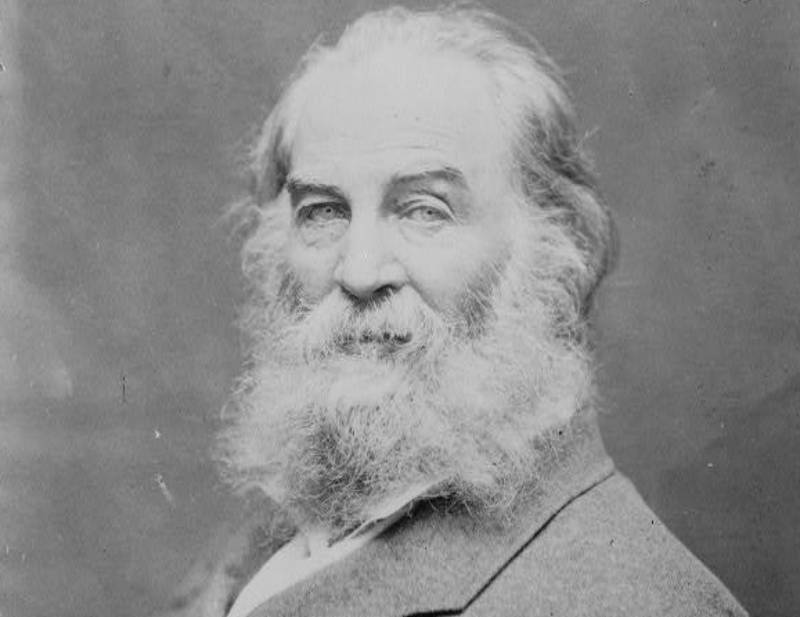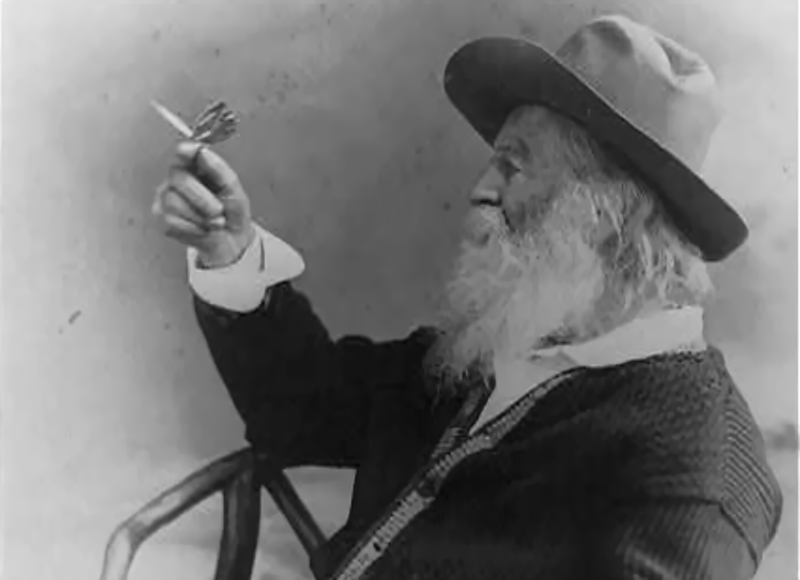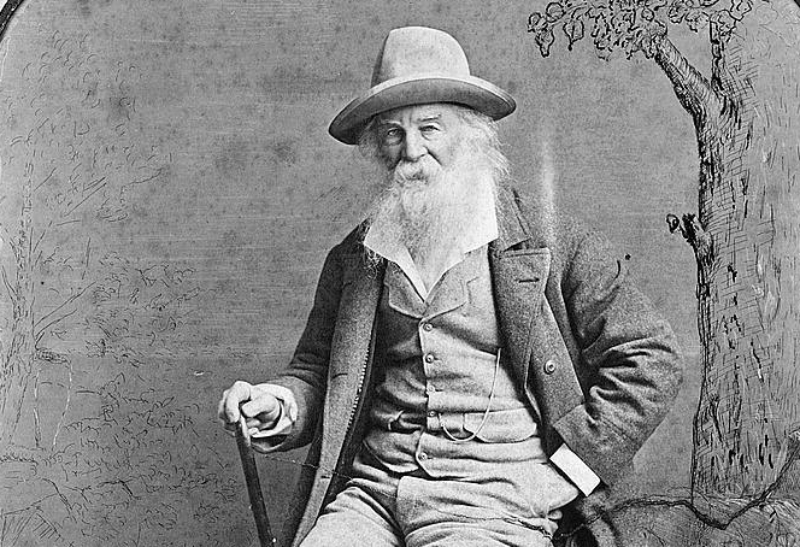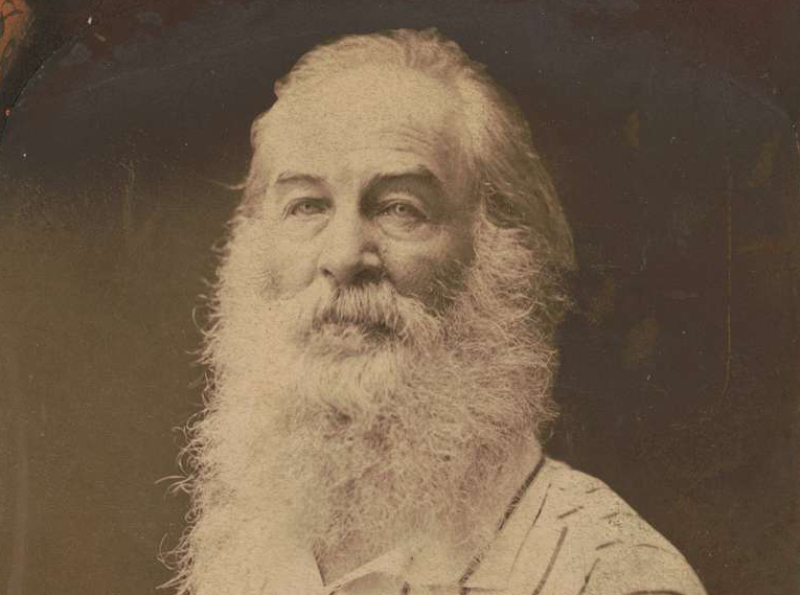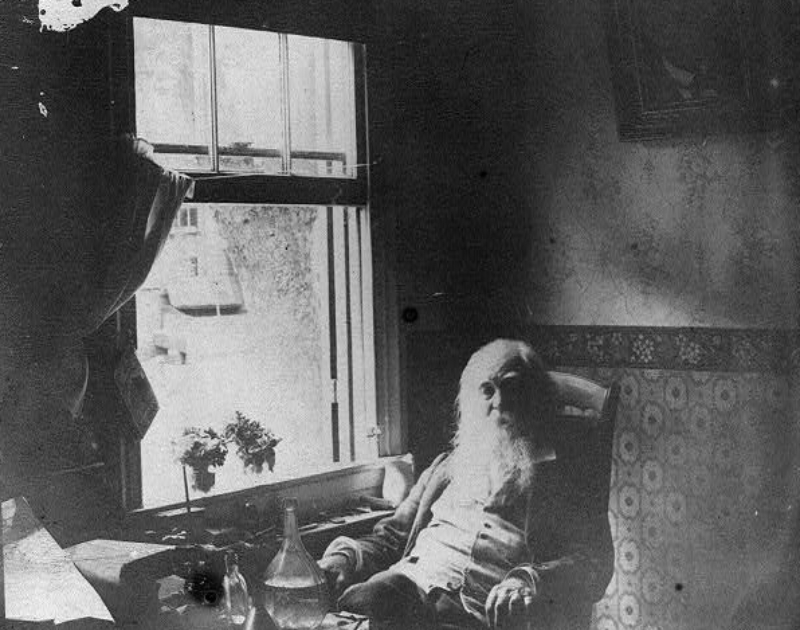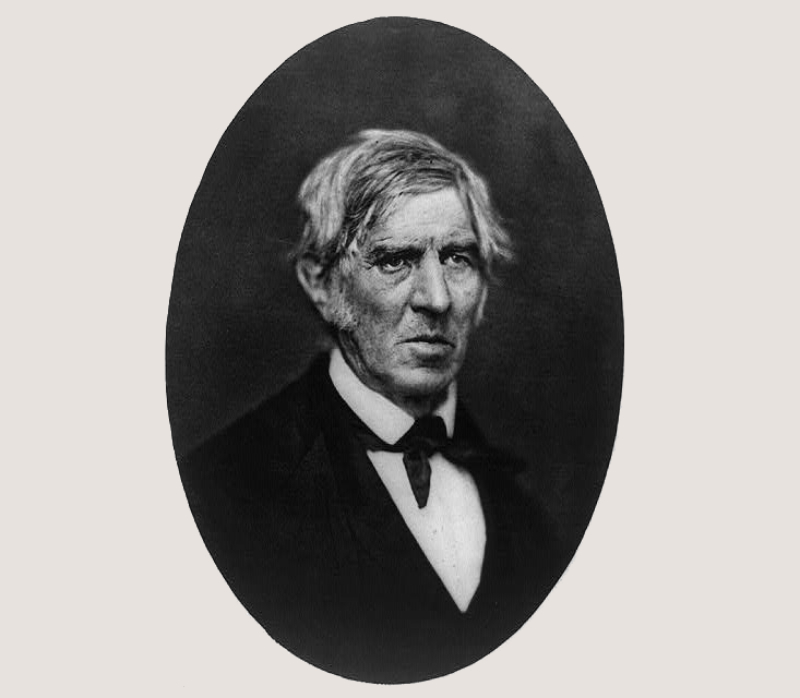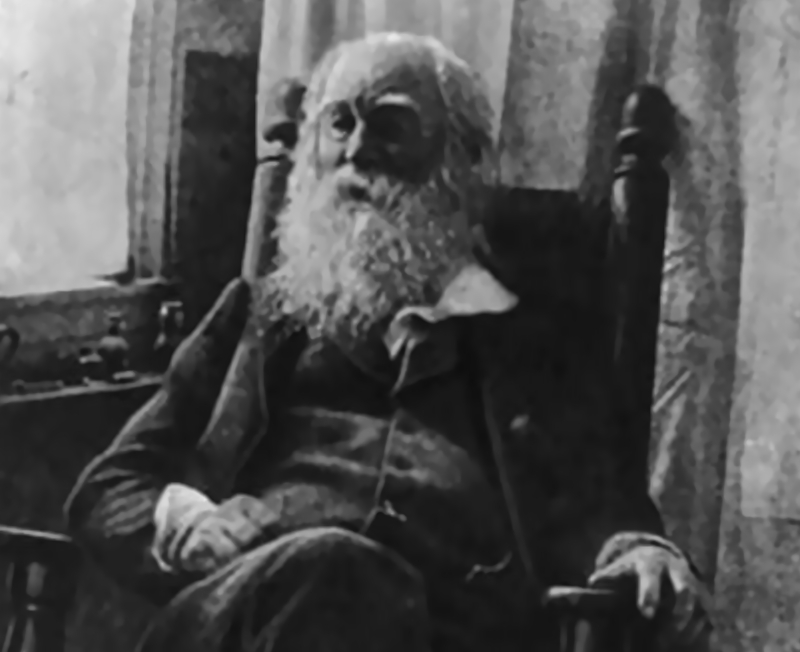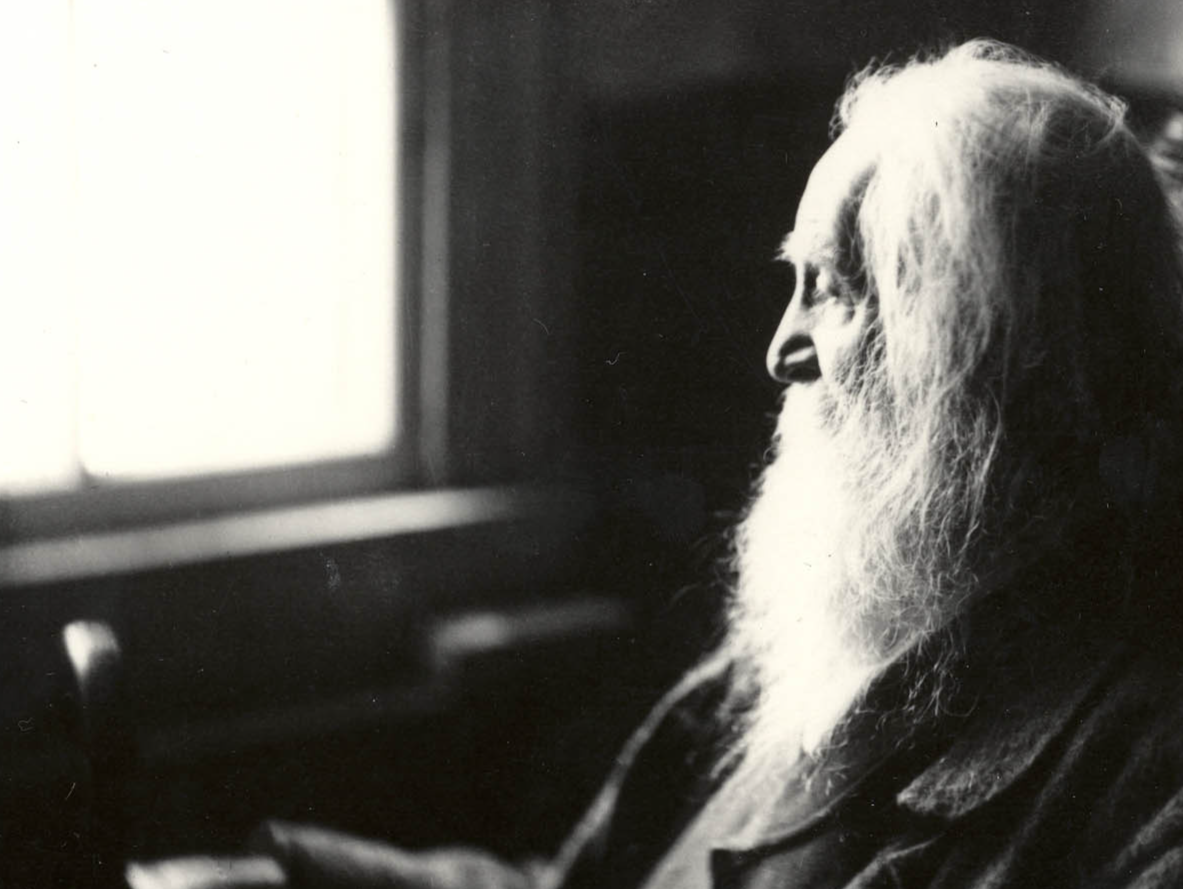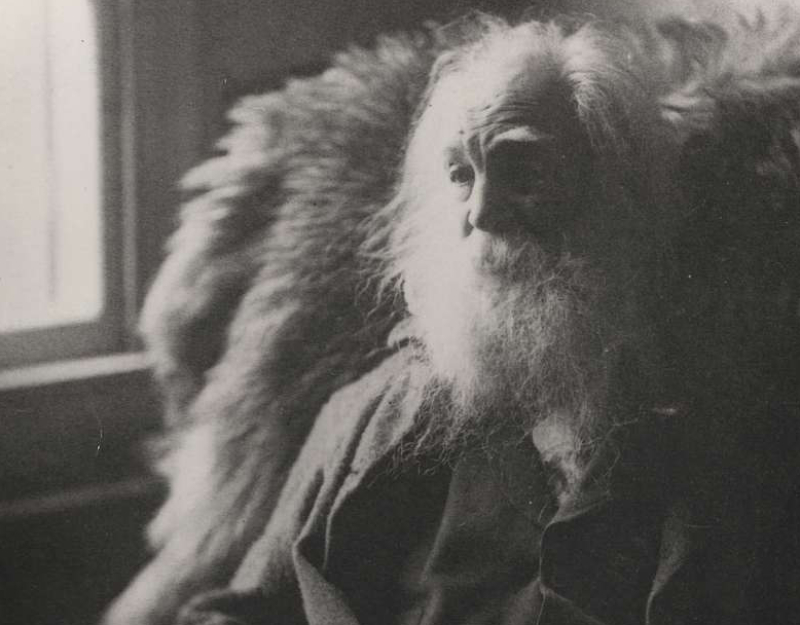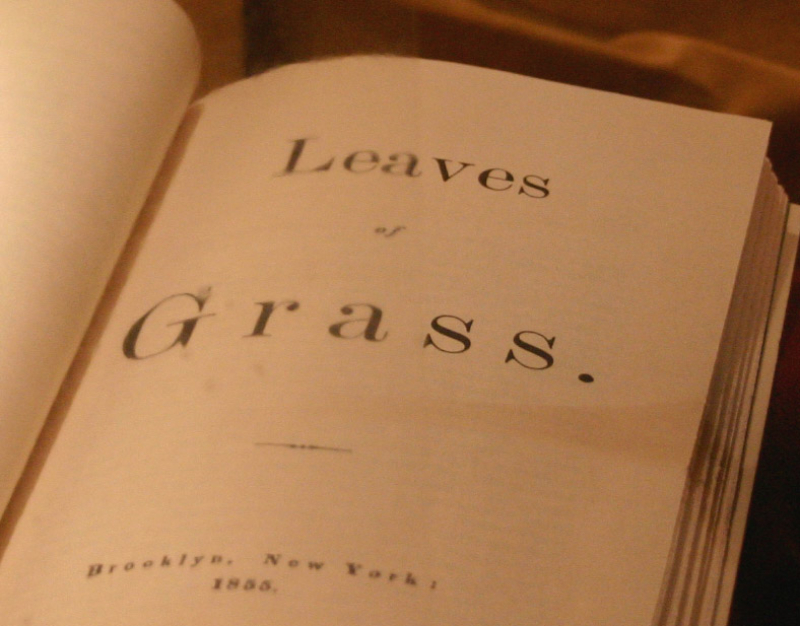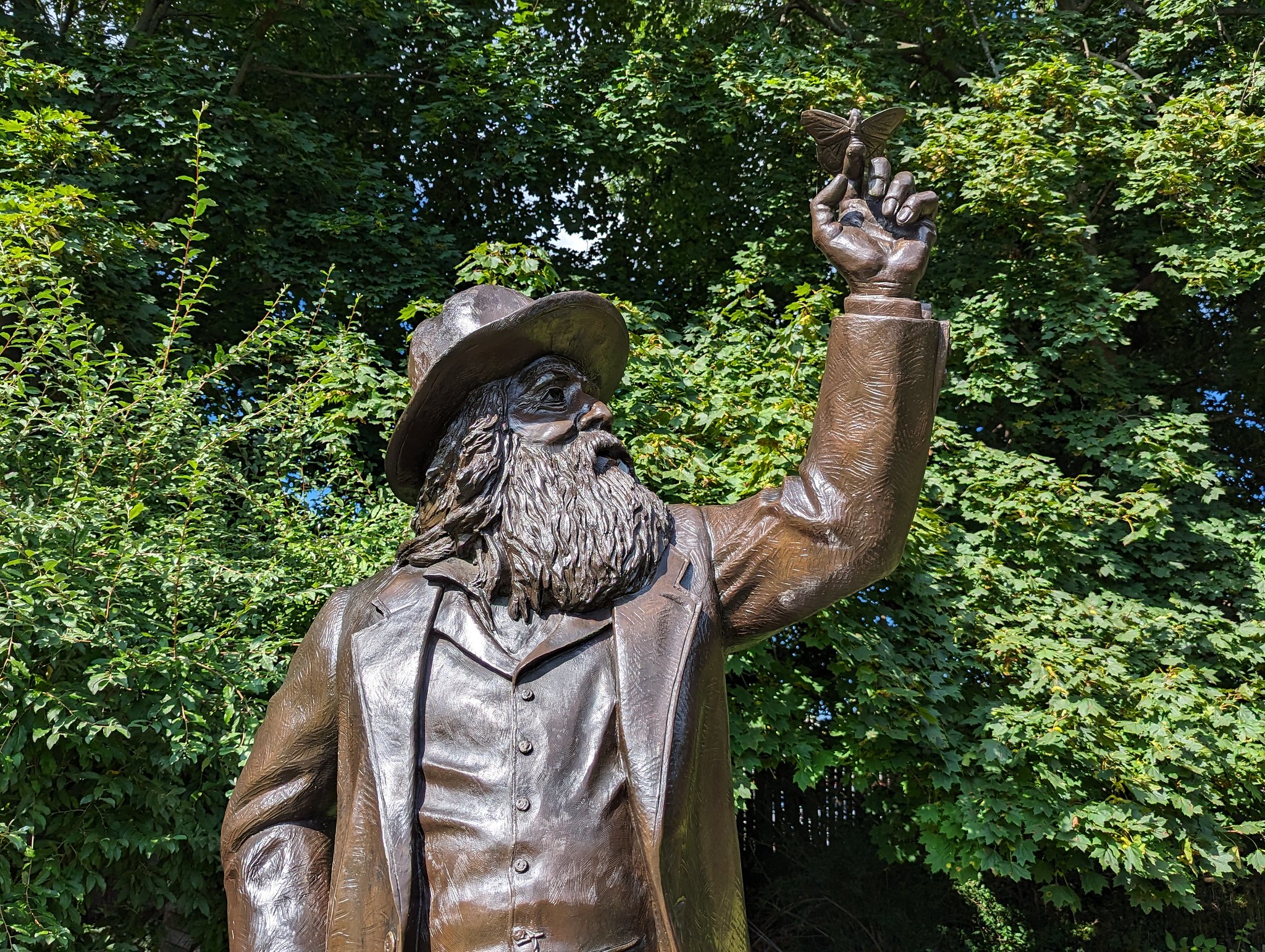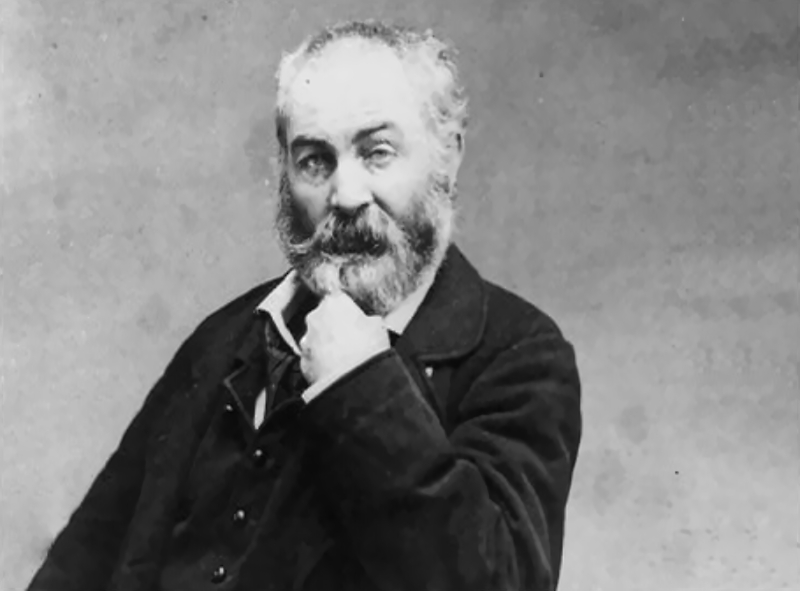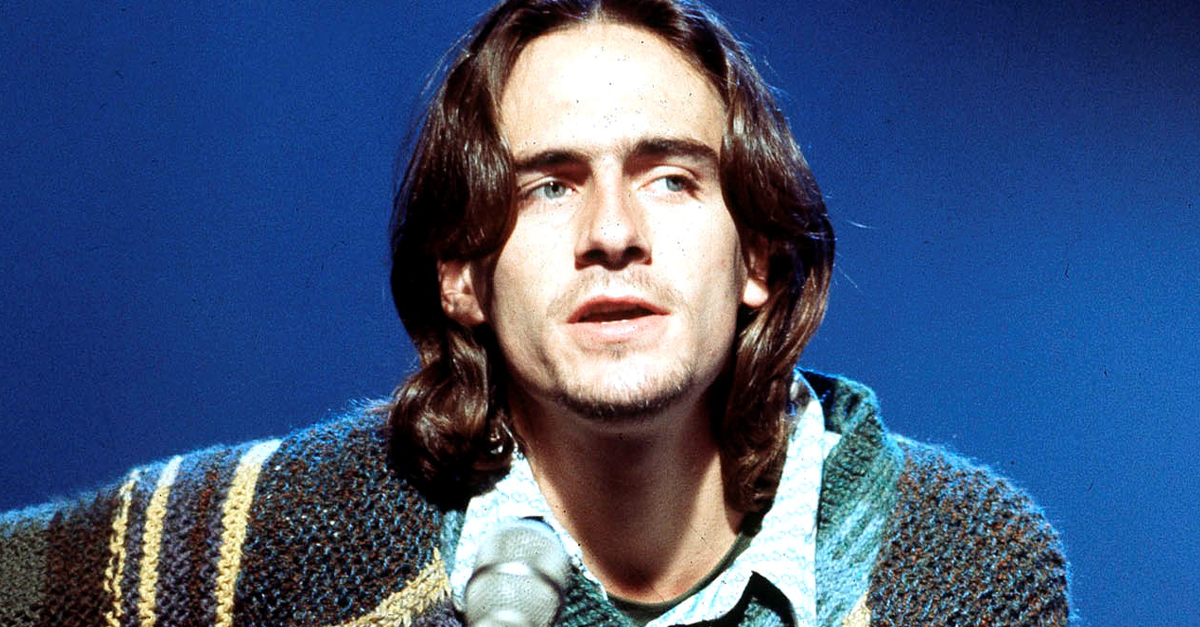The Indulgent Poet
Walt Whitman was “America’s poet” for much of the 19th and 20th century. But the suggestive subtext of his stanzas was too problematic for some readers. But after losing his mother and suffering a stroke, Whitman became a shell of the man he once was—and the shocking letters from his final days reveal just how far he had fallen.
1. His Poems Were A Problem
To his fans, Walt Whitman was synonymous with everything American: unbridled freedom, boundless opportunity and heedless optimism. But there's another side to the story. To his detractors, Whitman was nothing more than a dangerous predator, cloaking his carnal desires in pretty words.
We may never know the truth buried between the lines of his surprisingly controversial poems.
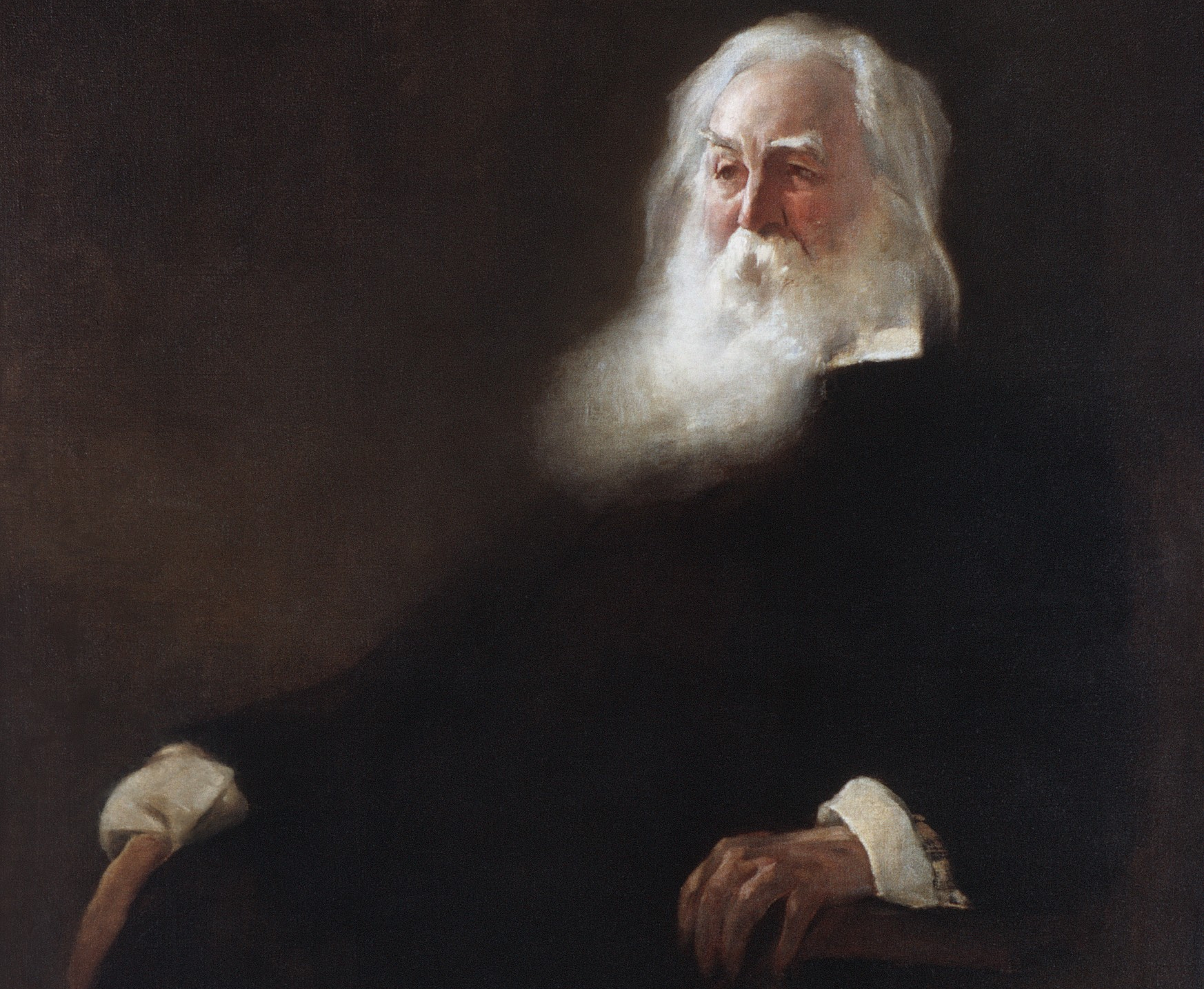 John White Alexander, CC0, Wikimedia Commons
John White Alexander, CC0, Wikimedia Commons
2. He Was “Restless And Unhappy”
Walt Whitman Jr. was the second of nine children born to Quaker parents in Long Island, New York in May 1819. His troubled childhood almost certainly contributed to his troubled adult years and apparent preoccupation with youth. His family moved around a lot because of their poor financial situation and he described those years as “restless and unhappy”. But it wasn't all bad...
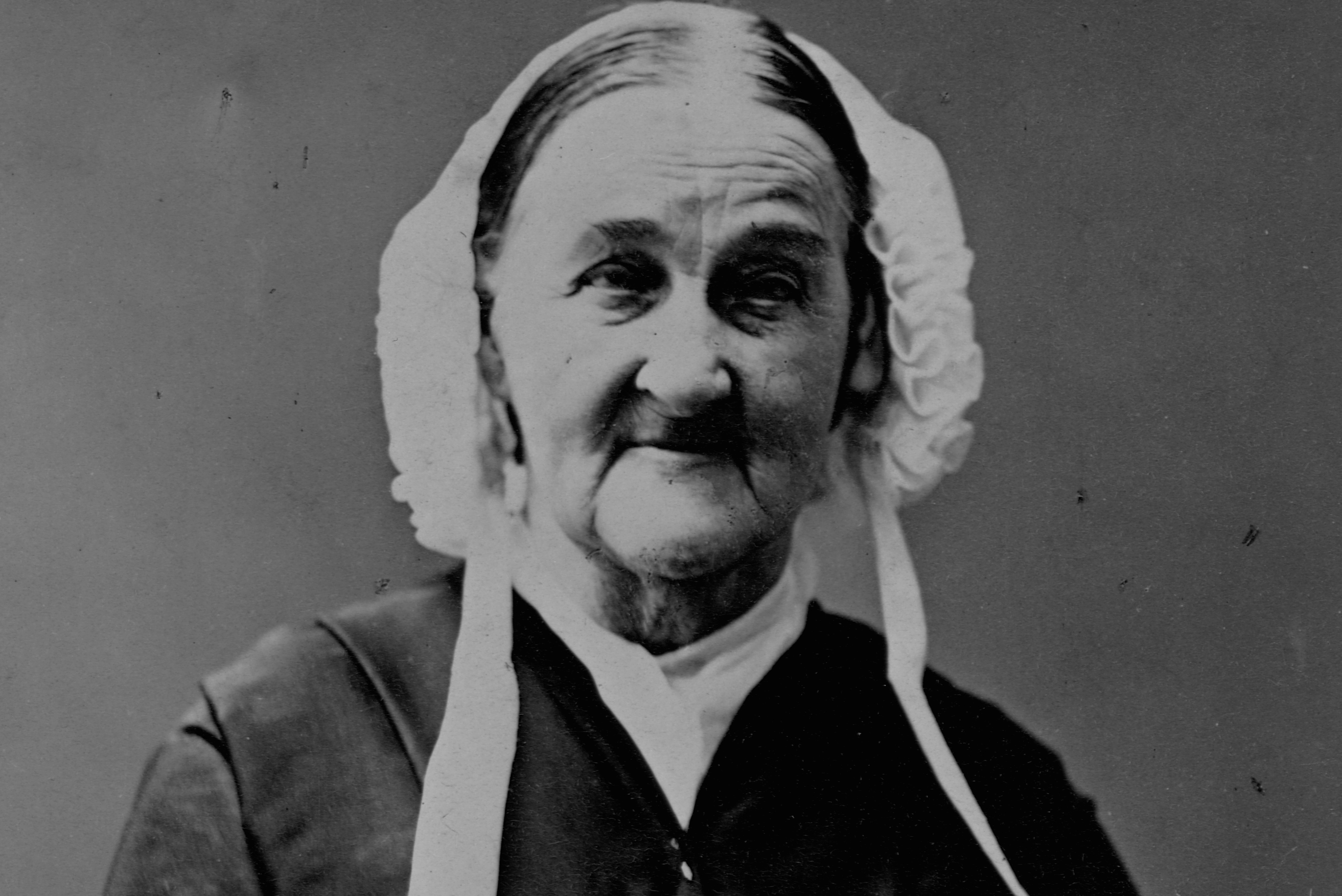 Library of Congress, Getty Images
Library of Congress, Getty Images
3. He Was Kissed By A Prince
The only highlight of his childhood was a kiss. While attending a public celebration at the Brooklyn Apprentices' Library, Whitman’s father hoisted him in the air. The guest of honor, the Marquis de Lafayette, gave the child Whitman a peck on the cheek. It had a bigger impact than anyone could have imagined.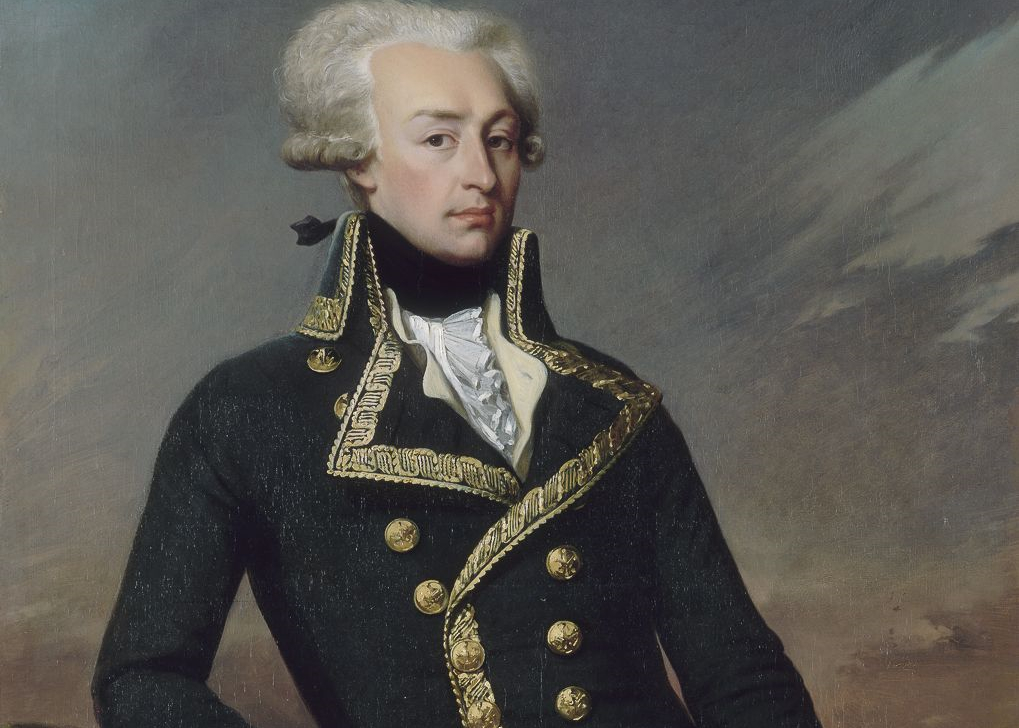 Joseph-Désiré Court, Wikimedia Commons
Joseph-Désiré Court, Wikimedia Commons
4. He Missed Out
Whitman dropped out of school at the tender age of 11 to help his parents make ends meet. He would spend the rest of his life trying to recapture his lost boyhood—sometimes in troublesome ways. In the meantime, however, he worked as a printer’s devil for the Patriot newspaper, immediately falling in love with the world of words.
But people weren't used to the kinds of words that Whitman wanted to use...
 Internet Archive Book Images, Wikimedia Commons
Internet Archive Book Images, Wikimedia Commons
5. He Started His Own Newspaper
Whitman displayed an early talent for writing. He published his first works of poetry anonymously while he was just a teenager working in New York’s publishing district. Eventually, he managed to start his own newspaper, the Long-Islander, and grew enough circulation to sell it at a profit. He felt he had a lot to give.
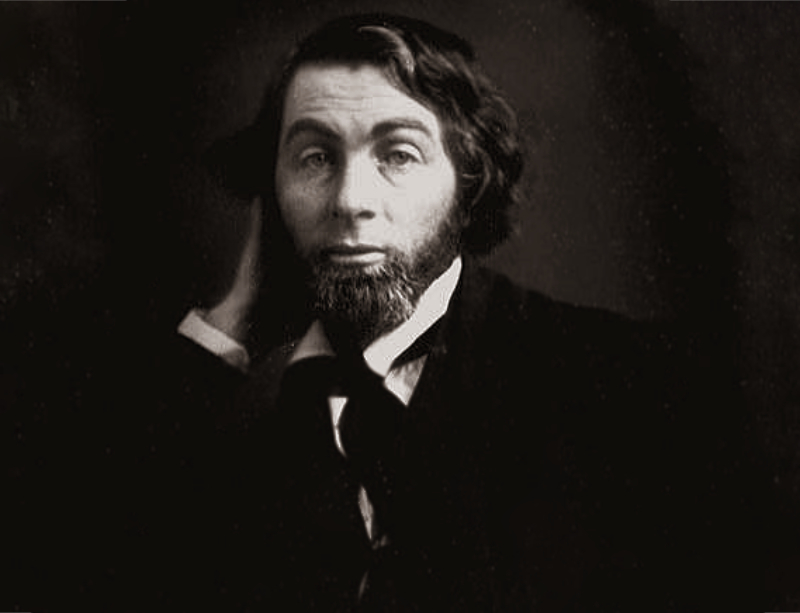 Walt Whitman Historic Site, Wikimedia Commons
Walt Whitman Historic Site, Wikimedia Commons
11. He Was An Abolitionist
Though his more deviant interests shocked society, not all of Whitman’s proclivities harmed his reputation. For one, as a proud American, Whitman was a staunch abolitionist and he was willing to put his words into action. While working as the editor of the Brooklyn Eagle, the owner of the newspaper fired him for his anti-slavery stance.
It wouldn't be the last time his radically liberal ideas landed him in hot water.
 Library of Congress, Wikimedia Commons
Library of Congress, Wikimedia Commons
12. He Wrote A Guide For Men
One of Whitman’s first books wasn’t exactly a work of literary genius. Under the pen name Mose Velsor, he wrote and published Manly Health and Training. It was something of a self-help guide that critics described as “quirky,” “over the top,” “pseudoscientific” and “wacky”. Those were, to put it mildly, understatements.
 Unknown Author, Wikimedia Commons
Unknown Author, Wikimedia Commons
13. He Suggested The Carnivore Diet
Whitman marketed his book as something of a guide to manhood. Some of his suggestions were perfectly mundane, such waking up early. Others were absolutely bizarre. He suggested that men grow beards, sunbathe in their birthday suits, take cold daily plunges and eat meat “almost exclusively”. It was not, thankfully, his finest work.
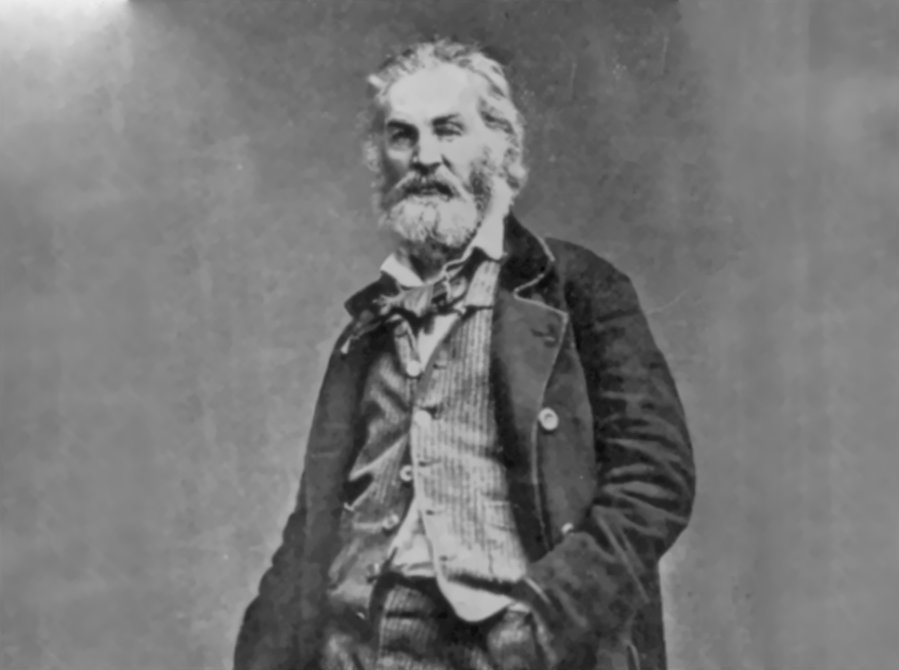 Library of Congress, Wikimedia Commons
Library of Congress, Wikimedia Commons

History's most fascinating stories and darkest secrets, delivered to your inbox daily.
14. He Published His Magnum Opus
In 1855, Whitman followed up his strange self-help manuscript for men with the work that would define his career—and ruin his reputation. In the five years between 1850 and 1855, he experimented with poetic styles (and lovers).
The end result was Leaves of Grass. It was by far and away the most scandalous literary debut of the time.
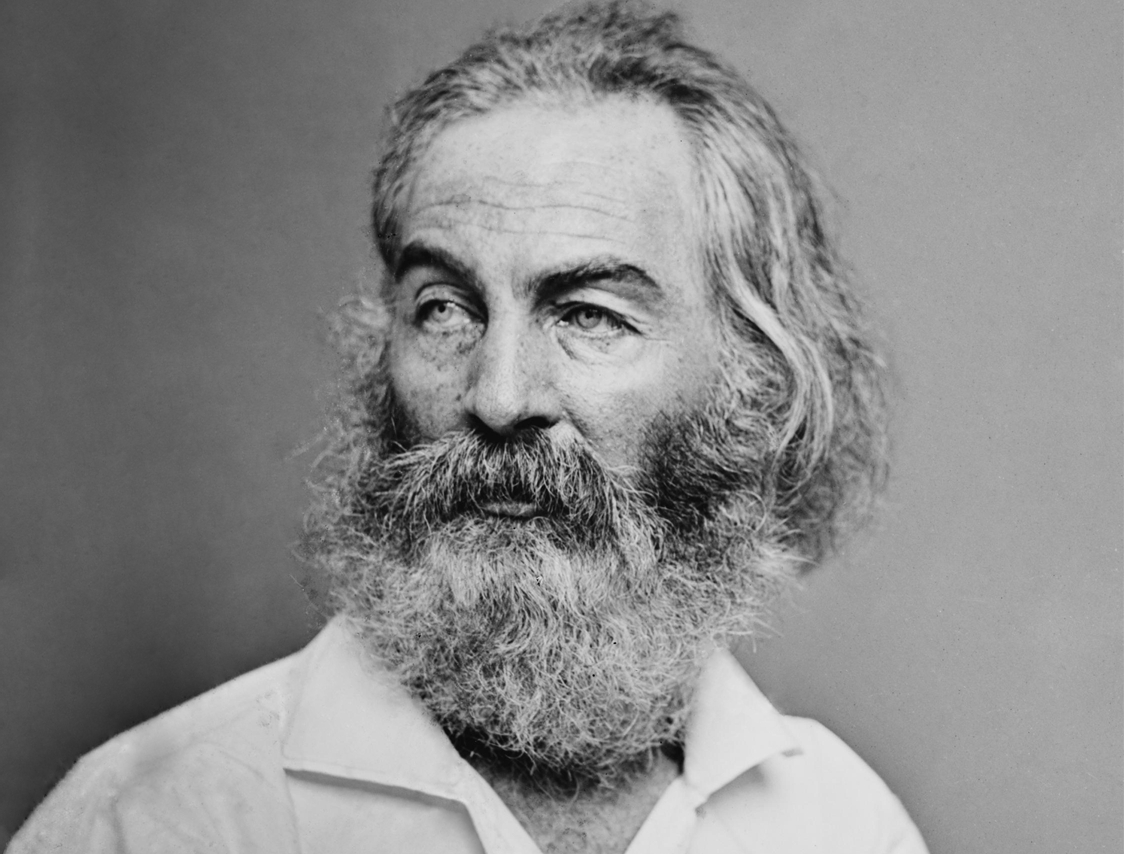 Mathew Benjamin Brady, Wikimedia Commons
Mathew Benjamin Brady, Wikimedia Commons
15. His Brother Wasn’t A Fan
Over the course of his life, Whitman was closest with his brother, George. As close as they were, however, George had some scathing words for his brother. When Whitman published his collection of poetry, Leaves of Grass, George simply shrugged it off. He said that he didn’t believe that his brother’s opus was even “worth reading”.
Others felt the same.
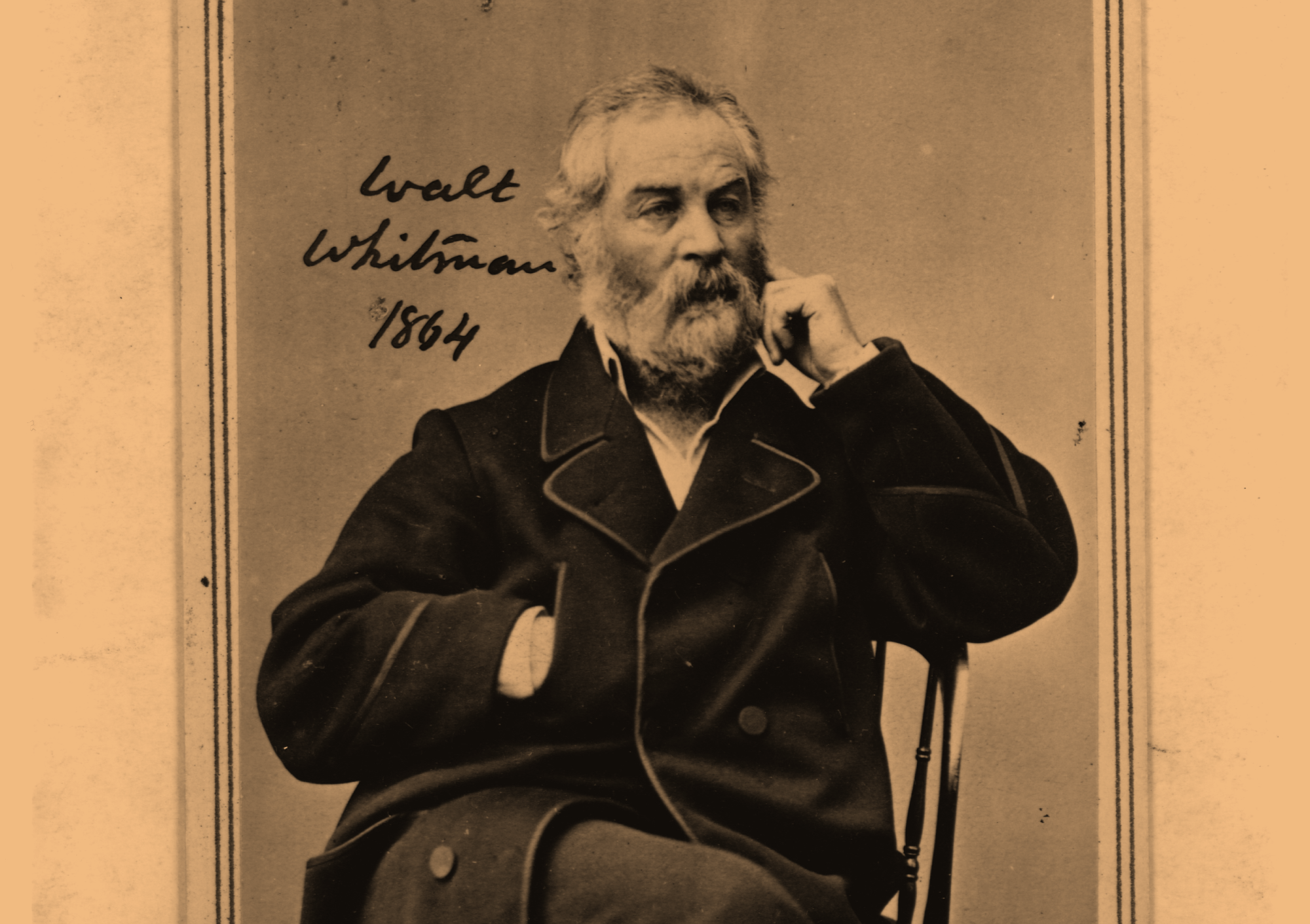 Library of Congress, Getty Images
Library of Congress, Getty Images
16. He Didn’t Want To Take Credit
Whitman paid to print the first copies of Leaves of Grass himself. But he was somewhat reluctant to take the credit for the work that he likely knew would cause a public outrage. He didn’t name himself on the cover of the book but, instead, had a portrait of himself placed within its pages. Still, the book was not exactly a success.
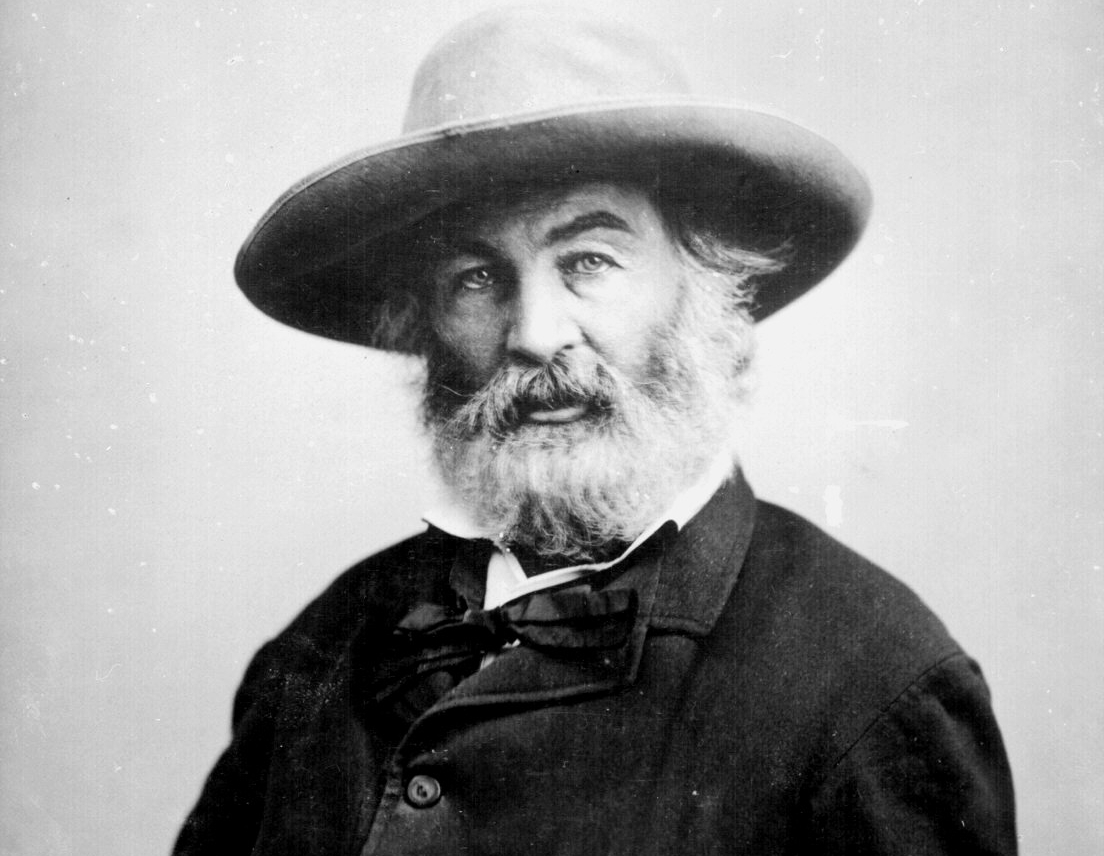 Mathew Benjamin Brady, Wikimedia Commons
Mathew Benjamin Brady, Wikimedia Commons
17. He Had Fans In High Places
Leaves of Grass might have passed into obscurity if it hadn’t been for Ralph Waldo Emerson, the famous essayist. After reading Whitman’s book of poetry, Emerson wrote a long, glowing letter to Whitman. “I greet you at the beginning of a great career,” Emerson wrote to Whitman while gushing about it to all of his literary friends.
Of course, a “great” career wasn’t the same as a “good” career.
 Josiah Johnson Hawes, Wikimedia Commons
Josiah Johnson Hawes, Wikimedia Commons
18. He Was Obsessive
Not everyone loved Whitman’s book of poetry as much as Emerson did. Many found Whitman’s style and subject matter to be inappropriate and “obsessively phallocentric”. Some said that it even bordered on the outright smutty, calling it “trashy, profane and obscene”. But the harsh criticism didn’t just end with Whitman’s verse.
19. He Was Pretentious
For the delicate sensibilities of mid-19th century America, Whitman’s Leaves of Grass simply went too far in its subject matter. As a result, Whitman’s own reputation took a drastic hit. The geologist Peter Lesley, for example, went so far as to call Whitman a “pretentious ***”.
Sleazy as he was, Whitman was not without his redeeming qualities.
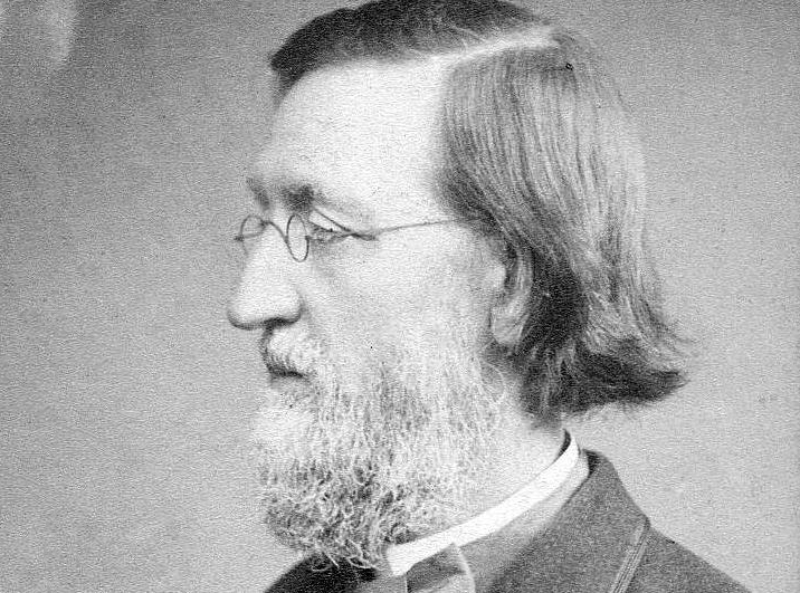 Taylor & Brown, Wikimedia Commons
Taylor & Brown, Wikimedia Commons
20. His Brother Was On The Front Lines
Even though his brother wasn’t terribly fond of his writing, Whitman still loved him. So, when Whitman discovered that George had enlisted to fight on the front lines of the Union Army, he was horrified—and he was right to be.
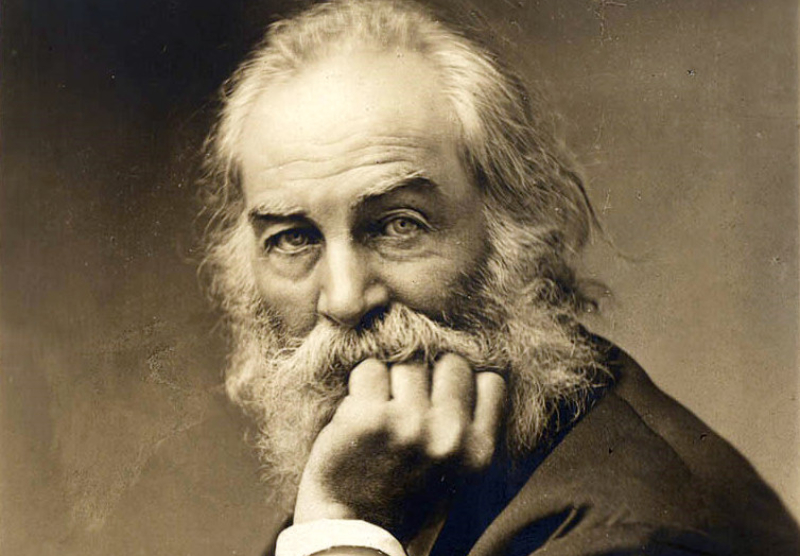 G. Frank E. Pearsall, Wikimedia Commons
G. Frank E. Pearsall, Wikimedia Commons
21. He Read The Bad News
Shortly before Christmas in 1862, Whitman read a list of the latest fallen Union soldiers. His heart sank to his feet when he read “First Lieutenant G. W. Whitmore”. Thinking that it had possibly been a typo, he packed up his things in a panicked fit and embarked on a perilous journey south to find his brother. Or whatever he believed was left of him.
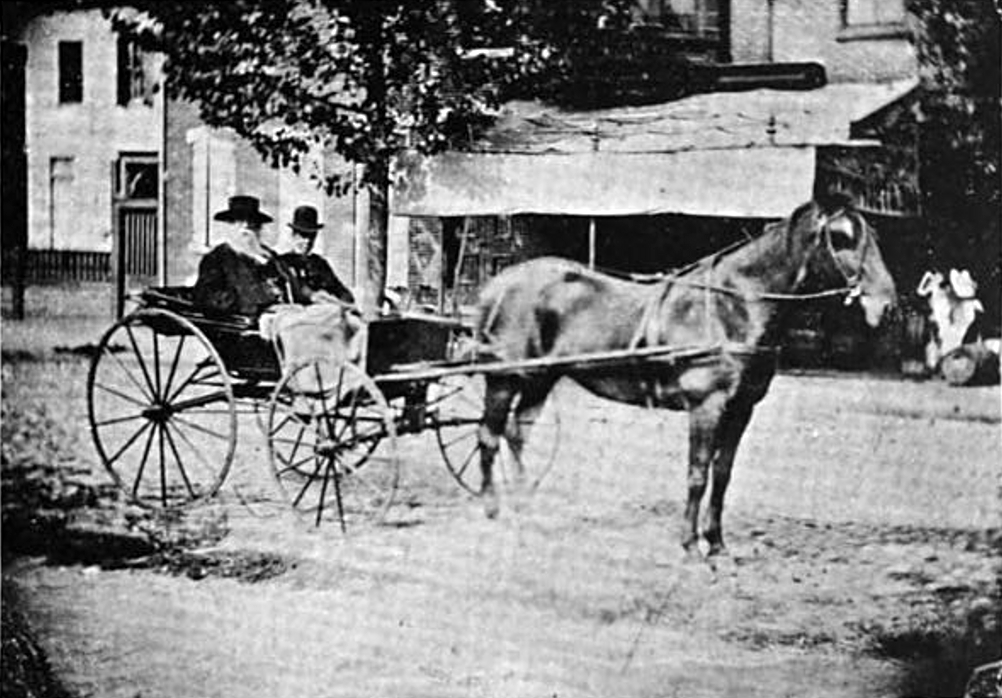 Unknown Author, Wikimedia Commons
Unknown Author, Wikimedia Commons
22. He Walked “All Day And Night”
Whitman’s journey south was fraught with perils. Within days of leaving New York, someone relieved him of his wallet. Then he walked “all day and night, unable to ride”. But it was all worth it in the end, because he found a miracle waiting for him: his brother George, alive and well.
Apparently, the papers had gotten it wrong. His brother was alive and well, except for a superficial cut on his cheek.
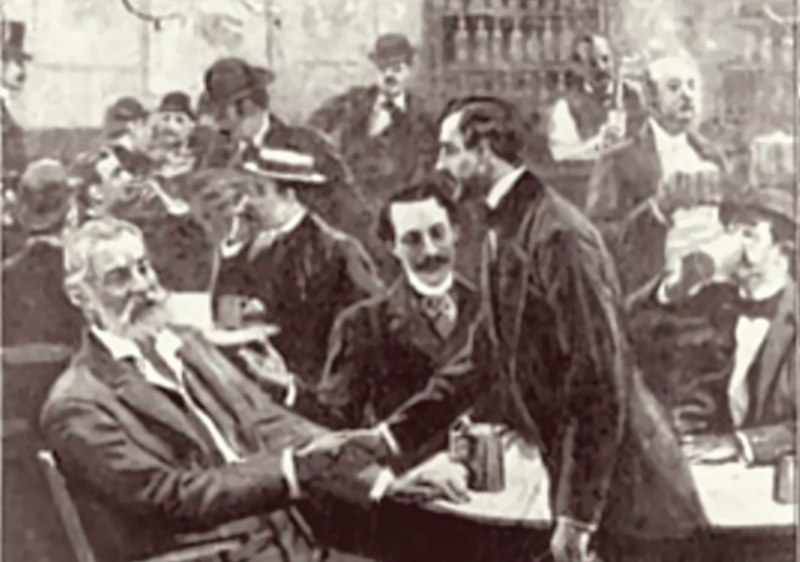 Unknown Author, Wikimedia Commons
Unknown Author, Wikimedia Commons
23. He Couldn’t Hold Down A Job
Whitman spent most of the rest of his career bouncing around from government post to government post. Generally, when one of his superiors learned that he was the author of the salacious Leaves of Grass, they would fire him. Fortunately, Whitman’s many defenders always managed to get him a new job. And there was one in particular that he liked.
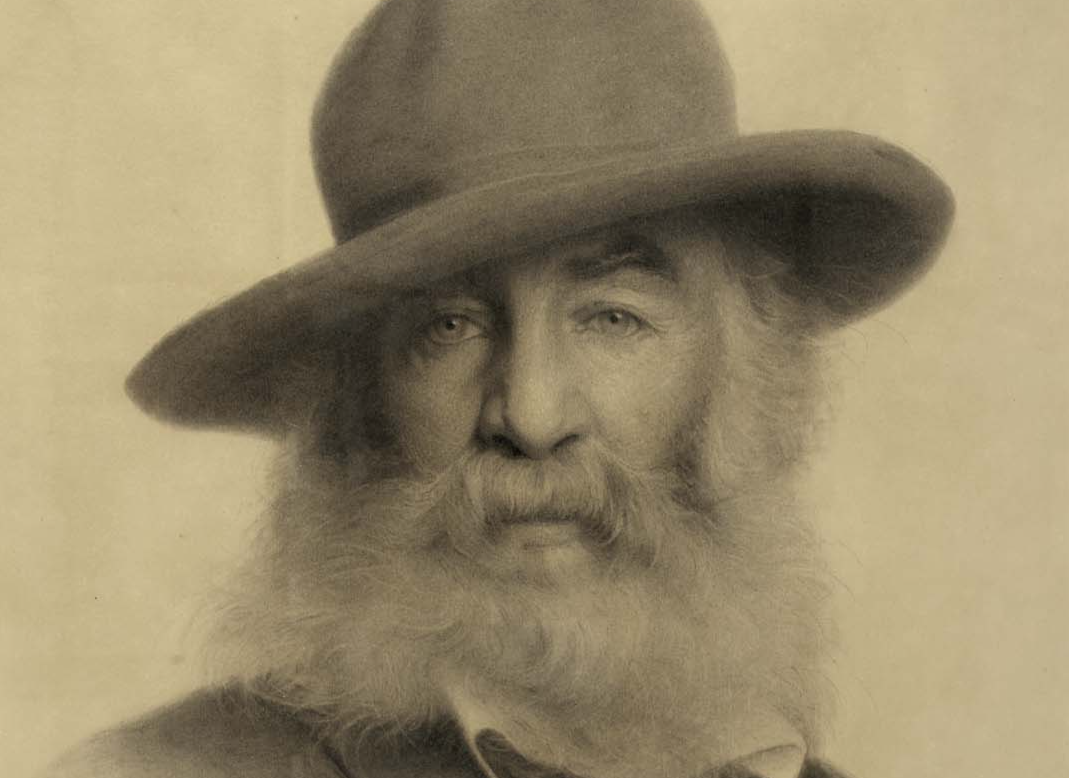 Thomas Dewing, Wikimedia Commons
Thomas Dewing, Wikimedia Commons
24. He Fancied Unordinary Things
Whitman eventually landed at the Attorney General’s office. His job involved interviewing former Confederate servicemen—many of them just poor, working class teenagers—seeking a presidential pardon. He later wrote of the job, “There are real characters among them, and you know I have a fancy for anything out of the ordinary”.
He fancied them alright.
25. He Met A “Young Giant”
During the Civil War, Whitman had also worked as a nurse. But he spent more time ogling the injured combatants’ bodies than he did tending to their wounds. He called one Confederate fighter, Oscar Cunningham, “a handsome young giant” who “ought to have been taken by a sculptor to model for an emblematical figure of the west”.
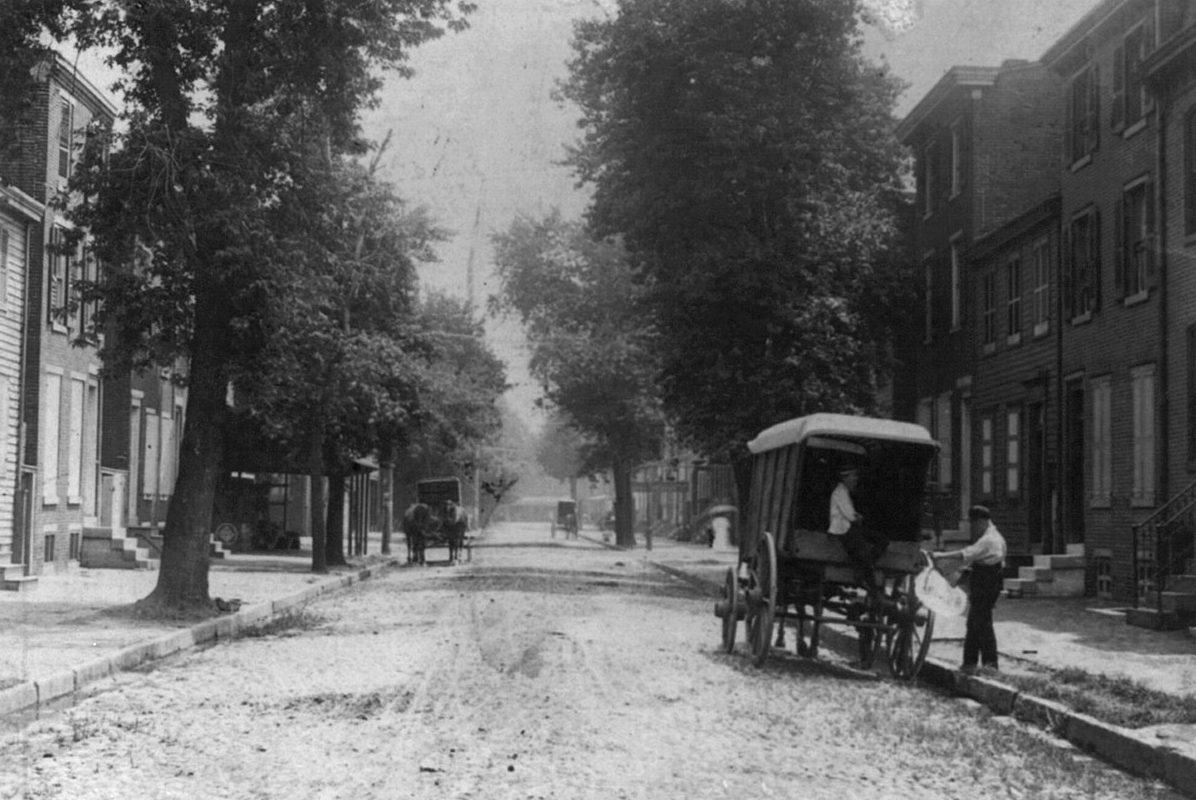 Library of Congress, Wikimedia Commons
Library of Congress, Wikimedia Commons
26. He Caused Speculation
Leaves of Grass was such an obscene collection of poems that people questioned Whitman’s curious obsession with the young male form. While most people whispered about it in hushed tones, however, fellow writer, Rufus Wilmot Griswold, was less cagey in his disgust. In 1855, Griswold openly suggested that Whitman was guilty of “that horrible sin not to be mentioned among Christians”.
27. His Real Desires Were A Mystery
One of Whitman’s contemporaries, the English poet John Addington Symonds, grew tired of trying to read between the lines of Whitman’s highly suggestive poems. He was determined to get to the bottom of the mystery that was Whitman’s romantic interests. In a series of letters, Symonds asked the question that others had only whispered in hushed tones.
28. He Denied Everything
Symonds asked Whitman, “In your conception of Comradeship, do you contemplate the possible intrusion of those [intimate] emotions and actions which no doubt do occur between men?” Whitman’s full-throated reply to Symonds’ blunt questioning has since left historians scratching their heads—and scouring family trees for illegitimate offspring.
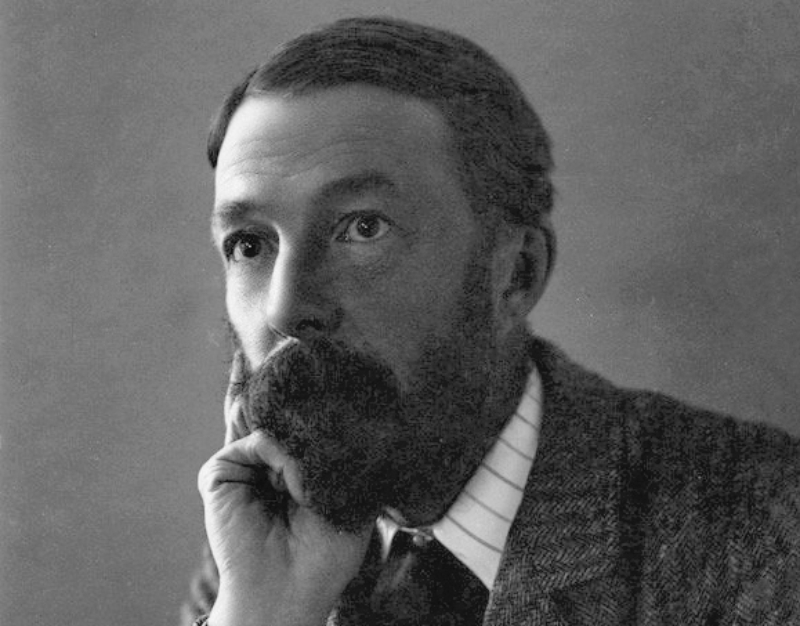 Eveleen Myers, Wikimedia Commons
Eveleen Myers, Wikimedia Commons
29. He Had Many Children
In his lengthy and unequivocal refutation of Symonds’ suggestions, Whitman called the accusations “morbid inferences” and “damnable”. He even claimed—rather implausibly—to have fathered no less than six illegitimate children. But, behind closed doors and to those whom he trusted, Whitman chose his words a lot less carefully.
30. He Got The Boys
Whitman had to at least keep up appearances that he was a decent man. But he was less guarded in conversations with his assistant, Horace Traubel. When Traubel asked Whitman what he got out of nursing, Whitman replied, “Well—I got the boys for one thing: the boys: thousands of them: they were, they are, they will be mine”.
He seemed to have a way with them.
 Arthur Clifton Goodwin, Wikimedia Commons
Arthur Clifton Goodwin, Wikimedia Commons
31. He Fooled The Teens
Whitman confessed almost everything to Traubel—including how he groomed his young lovers. “Young fellows seem rather bowled over by me,” Whitman bragged. “I fool ’em for a time, when they’re in their teens, but when they grow up they can no longer be deceived”. Which is why he always seemed to keep the boys on rotation.
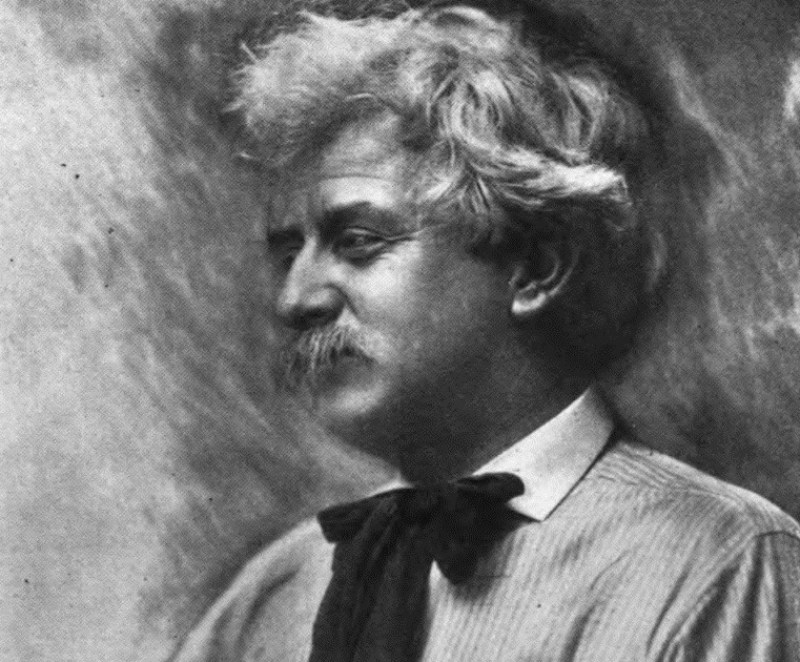 Unknown Author, Wikimedia Commons
Unknown Author, Wikimedia Commons
32. He Was Wild For Wilde
Other famous writers of the time shared more than just a gift for words with Whitman. After Oscar Wilde met the scandalous poet in 1882, he had a titillating story to tell. Wilde left Whitman’s to meet with the author and activist George Cecil Ives and spilled the tea. “I have the kiss of Walt Whitman still on my lips,” Wilde told Ives.
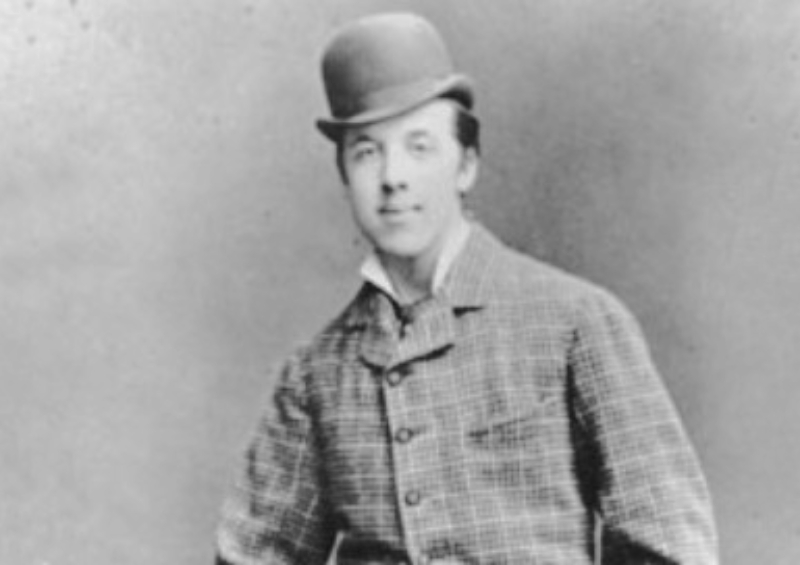 Hills & Saunders, Wikimedia Commons
Hills & Saunders, Wikimedia Commons
33. He Met A Great Love
Whitman met the presumed love of his life, Peter Doyle, on a cold and stormy night in Washington D.C. Doyle was then just a young, 21-year old streetcar conductor and veteran of the Confederacy. He also happened to be completely illiterate. But despite their differences, Whitman fell for Doyle—as long as his youth lasted.
34. He Went To The End Of The Line
Doyle described how he met Whitman on that night. As he explained it, something in him simply felt drawn to the poet—and vice versa. “We were familiar at once—I put my hand on his knee—we understood." Whitman didn’t bother to get off at his stop, but rather took Doyle's streetcar to the end of the line and, presumably, to his bed.
35. He Found His Muse
Whatever transpired on that cold and stormy night in 1866 inspired Whitman like nothing else had. Despite the more than 20-year age gap between them, the love that Whitman had for Doyle inspired him to write his most famous poem of all, Calamus. Unfortunately, his beloved muse couldn’t stay young forever—and neither could he.
36. He Was A Great Athlete
Whitman was 45 years old when he met Doyle. But, according to Doyle, the bawdy bard was in the prime of his life. In an interview years later, Doyle recalled how Whitman was in their years together. “He was an athlete—great, great. I knew him to do wonderful lifting, running, walking”.
He also did some great writing as well, of course.
37. His Lover Grew Too Old
The love story between Whitman and Doyle had about as many chapters in it as Leaves of Grass had editions. Whitman never married, but his relationship with Doyle was, at least from appearances, as close as he ever came. Eventually, however, Whitman’s great athleticism faded, as did Doyle’s youth.
38. He Had “Thick” Friends
Whitman had a preference for boys and young men from poor backgrounds—like him. One such boy was Bill Duckett, an unassuming 15-year old who moved into a house just down the street from Whitman. The two became close friends with Whitman even describing their relationship as “thick”.
They were, according to some sources, inseparable.
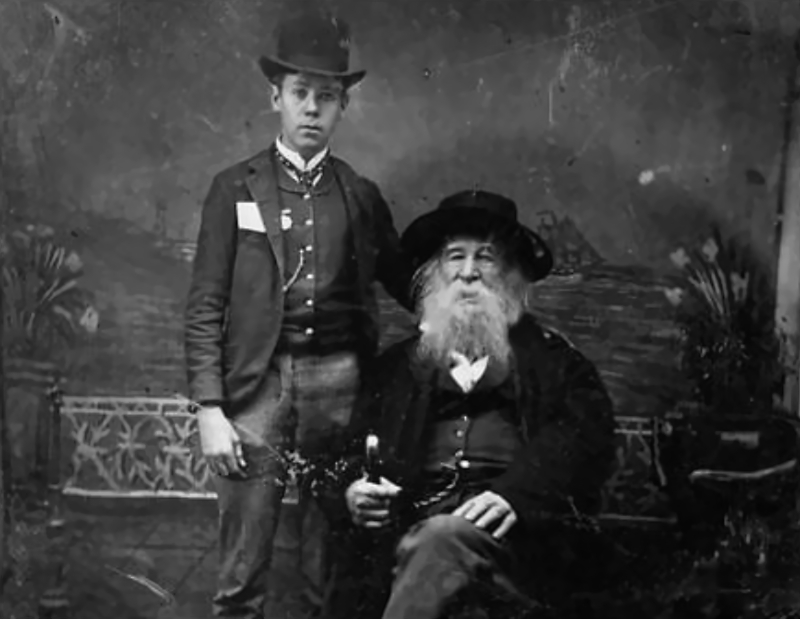 New York Public Library, Picryl
New York Public Library, Picryl
39. He Housed Poor Boys
Various sources describe Whitman as either an opportunistic predator or a big brother to wayward young men. With Bill Duckett, it was almost impossible to tell the difference. Whitman helped the boy out when his family ran out of money, and even had Duckett and his family as boarders.
What's not clear, however, is if Duckett had his own sleeping chambers, if you catch our drift.
 Library of Congress, Getty Images
Library of Congress, Getty Images
40. He Had A Place To Stay
Whitman also frequently visited Timber Creek. But he probably wasn’t there to draw inspiration from the scenery for his next poem. He struck up an almost certainly romantic relationship with the 18-year old son of the family whose house he stayed in. The young and strapping Harry Stafford was, potentially, his second great love.
41. He Nearly Proposed
Whitman gave Stafford a ring as a symbol of their…bond? But their relationship, whatever it was, was definitely no cake walk. Whenever they had a falling out—which was often—Whitman would take back the ring. Or Stafford would throw it at him. Either way, it was a dangerously passionate relationship.
42. He Had A “Son”
When he wasn’t with Doyle or Duckett—or the small battalion of other boys he considered “friends”—Whitman frequently traveled around with Stafford. He referred to Stafford variously as his “adopted son” and “nephew”. But they were closer than any father and son should be.
Allegedly, Whitman and Stafford shared a bed whenever they were together.
 Augustus Morand, Wikimedia Commons
Augustus Morand, Wikimedia Commons
43. He Still Loved Stafford
Despite their turbulent relationship—carnal or not—Whitman and Stafford had something real. There was clearly a strong connection between them. Stafford even wrote to Whitman about the ring, saying, “You know when you put it on there was but one thing to part it from me, and that was death”. Stafford would have to get in line.
44. He Had Some Childhood Trauma
The troublesome aspects of Whitman’s behavior as an adult could have started when he was just a child. Charles Shively, an author and Whitman biographer, has made some wild claims about Whitman’s early years. In 1987’s Calamus Lovers, Shively wrote that Whitman’s first sensual experiences happened within his own home.
45. He Loved His Brothers—Maybe Too Much
In the explosive and scandalous pages of Calamus Lovers, Shively made some truly sordid accusations. Shively alleged that Whitman had carnal relations with his own brothers. But, outside of his own speculation and conjecture, Shively didn’t present any evidence to support these wild claims.
Whitman was more of a romantic anyway.
 J. W. Rochlitz, Wikimedia Commons
J. W. Rochlitz, Wikimedia Commons
46. His First Lover Broke His Heart
Long before Doyle, Duckett, Stafford, and all the others, there was Fred Vaughan. He was, potentially, Whitman’s first “lover”. No one knows too much about the nature of their relationship except that it had a lasting impact on Whitman and colored his later relationships with young men and boys. But not for the better.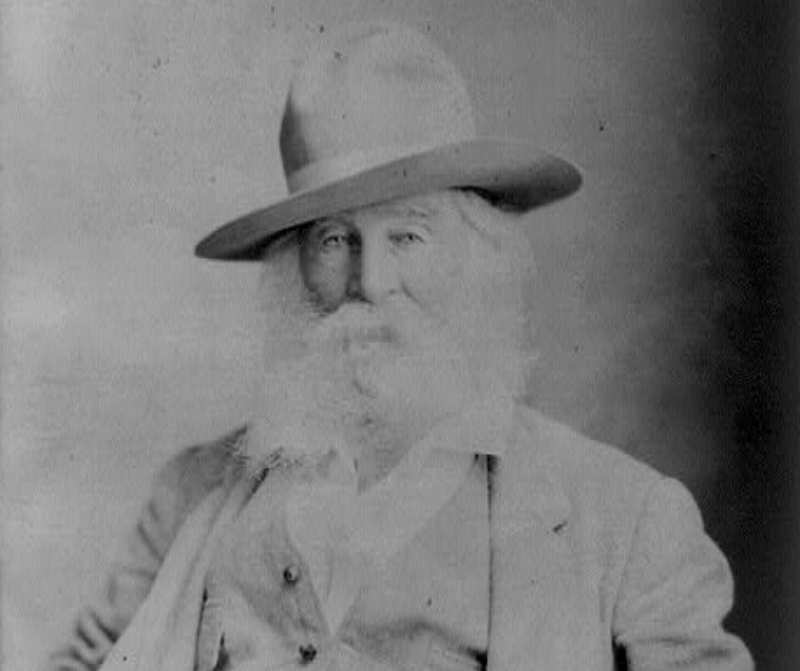 Library of Congress, Picryl
Library of Congress, Picryl
47. He Felt Guilt And Shame
In his earlier years, Whitman showed some guilt and shame over his more infernal desires. Whatever happened between himself and Vaughan left a callous around his heart. In a private note to himself, sometime shortly before he met Doyle, Whitman wrote, “Depress the adhesive nature/It is an excess—making life a torment/All this diseased, feverish disproportionate adhesiveness/Remember Fred Vaughan”.
“Adhesive” was an early 19th century code word for gay relations.
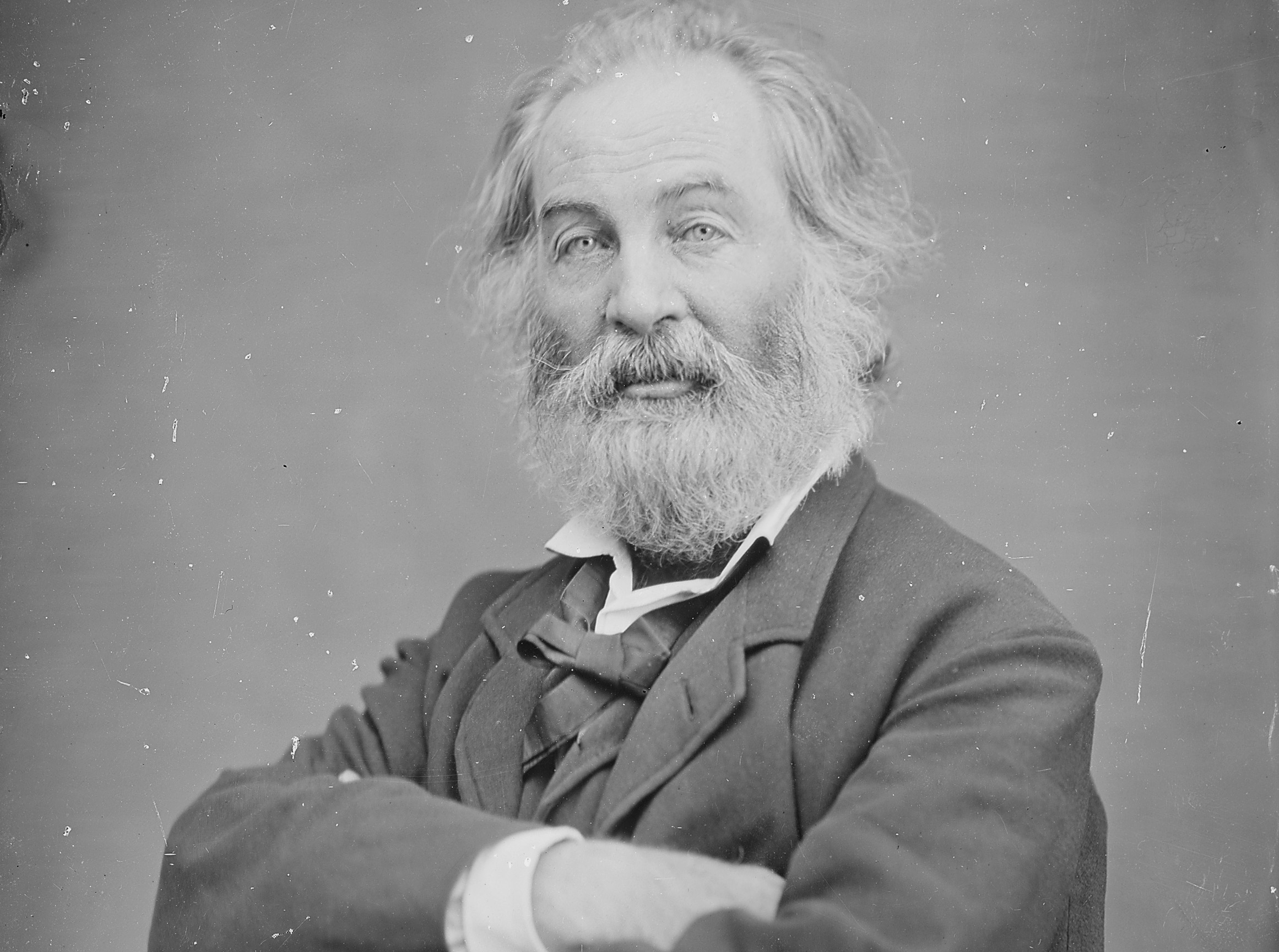 The U.S. National Archives, Wikimedia Commons
The U.S. National Archives, Wikimedia Commons
48. He Had Some Lady Friends
Never one to discriminate, Whitman also reportedly had numerous female lovers. The most famous of these was Ellen Grey, an actress in New York. When he moved to Camden, New Jersey, he referred to Grey as “an old sweetheart of mine”. There’s no telling how many of these old sweethearts—male and female—that Whitman had. Especially because he lied constantly.
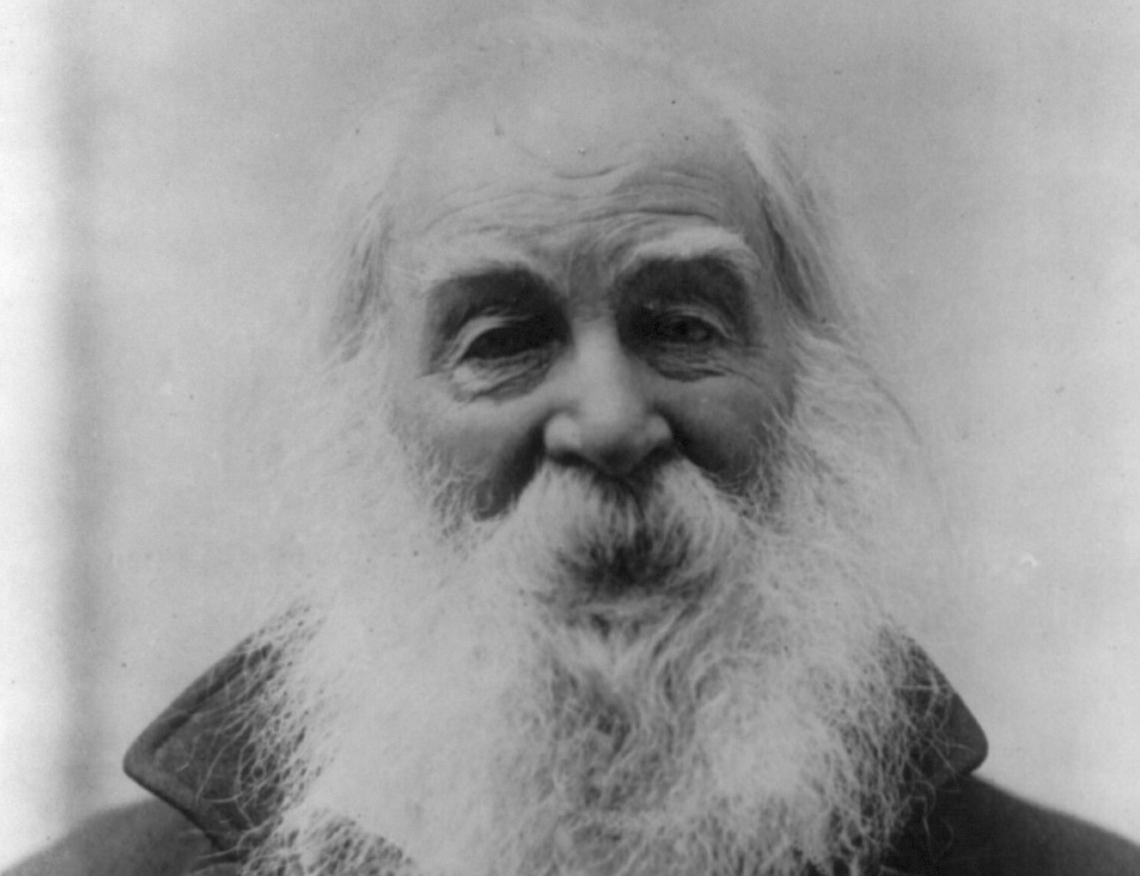 Library of Congress, Wikimedia Commons
Library of Congress, Wikimedia Commons
49. He Admonished Drinkers
Whitman wavered from a staunch advocate of temperance to a self-confessed bleary-eyed sot. His first novel, Franklin Evans; or The Inebriate, was a temperance novel meant to dissuade the consumption of booze and other intoxicants. He would later admit to hating the novel and its moral message of abstinence from a good drink.
Probably because he was a hypocrite.
50. He Was A Total Hypocrite
Years later, Whitman called his debut novel “damned rot”. He went on to confess that he had only written the novel as a way to make money when he needed it, which, given his spending habits, was often. Worse yet, he revealed his hypocrisy when he confessed that he had written the novel on temperance while, himself, on a three-day long bender.
But as he got older, he just couldn’t drink like he used to.
51. He Was Paralyzed
Whitman had once been the very image of health and vitality. But age left him badly scarred. In 1873, when he was just 53 years old, he suffered a terrible stroke that left him partially paralyzed and almost totally bedridden. The stroke was so bad that he had to move in with his brother, George. In fact, the whole Whitman family was having a hard time.
52. He Was Depressed
Later that same year, in May, Whitman suffered another setback. Shortly before his 54th birthday, his ailing mother finally drew her last breath. The double-whammy of his stroke and his mother’s sad passing was more than his poetic heart could handle and he fell into a deep depression. He didn’t even have Doyle to console him.
53. He Couldn’t See The Man He Once Loved
There had been a time (seven years to be exact) when Whitman and Doyle had been inseparable. However, as their lives changed and grew, they had drifted apart. Because of Whitman’s paralytic stroke, he was no longer able to travel to meet with Doyle. But, bedridden as he was, he had all of the time in the world to write.
54. He Finally Finished Leaves of Grass
Whitman finally composed the last edition of Leaves of Grass in 1891. He finally felt that he had finished the work he had tried so hard to perfect in edition after edition. “L. of G. at last complete,” he wrote, “after 33 [years] of hackling at it, all times & moods of my life, fair weather & foul, all parts of the land, and peace & [combat], young & old”.
55. He Was Suffering In The End
Whitman finished the final edition of Leaves of Grass just in time. By 1890, he was at last too feeble to even lift a fork and knife to feed himself. “I suffer all the time,” he wrote, “I have no relief, no escape: it is monotony—monotony—monotony—in pain”. At the very least, he went out doing what he liked most.
56. He Just Liked to Look
Even as he was drawing his last breaths, Whitman still indulged in his favorite pastime: admiring young men. Shortly before his passing in March 1892, Whitman posed for a photograph with his male nurse, Warren Fritzinger. Some of his final words to Traubel were, “I like to look at him—he is health to look at: young, strong, lithe”.
57. He Got A Hero’s Farewell
Despite all of the scandals and salacious gossip, Whitman's words transcended his actions, and he received a hero’s farewell. When he passed at the age of 72 in Camden, New Jersey, those who admired his poetry showed up in force. They covered his oak coffin in so many flowers that it was barely visible. One person, in particular, mourned him.
58. He Left Nothing Behind
Despite their many years of companionship, Whitman didn’t leave anything to Doyle in his final will except for a head full of memories and a heart full of grief. Still, somehow, Doyle got his hands on one of Whitman’s old coats. “I now and then put it on,” Doyle reminisced. “I do not ever for a minute lose the old man”.
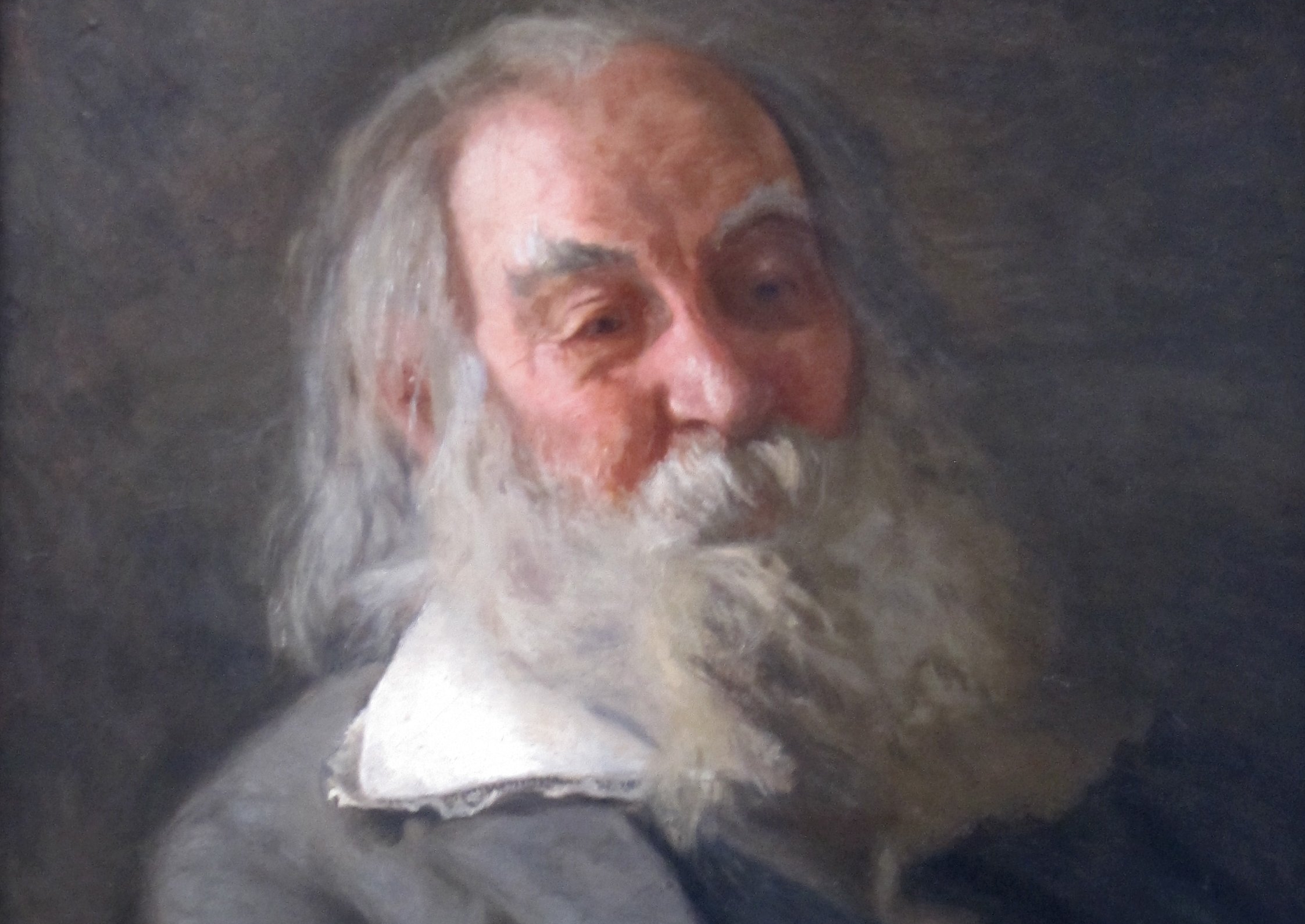 Thomas Eakins, Wikimedia Commons
Thomas Eakins, Wikimedia Commons
6. He Was A Tawdry Teacher
After selling his newspaper, Whitman found work as a teacher. If we are to believe the rumors, he taught the children a lot more than he was supposed to. A local preacher in Southold, New York came forward with terrible accusations against Whitman that would have him fleeing for his life.
But not before the townsfolk could exact some justice.
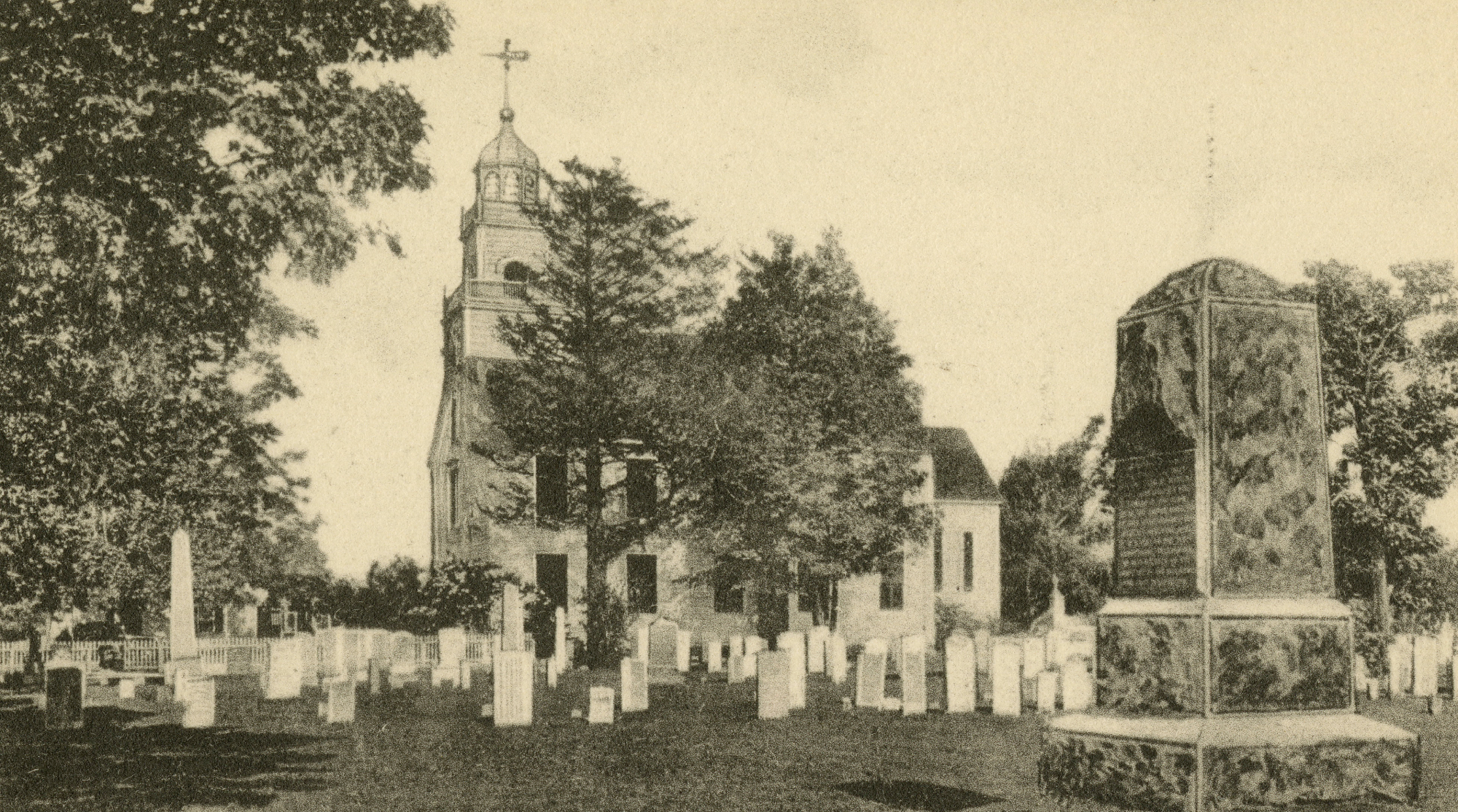 Unknown Author, Wikimedia Commons
Unknown Author, Wikimedia Commons
7. He May Have Violated A Student
Soon after Whitman arrived, the local preacher reportedly made an extremely dangerous accusation: buggery. Worst of all, he claimed that Whitman had performed the act with one of the students he was meant to educate and protect. After publicly defaming Whitman with these accusations, there was only one course of justice.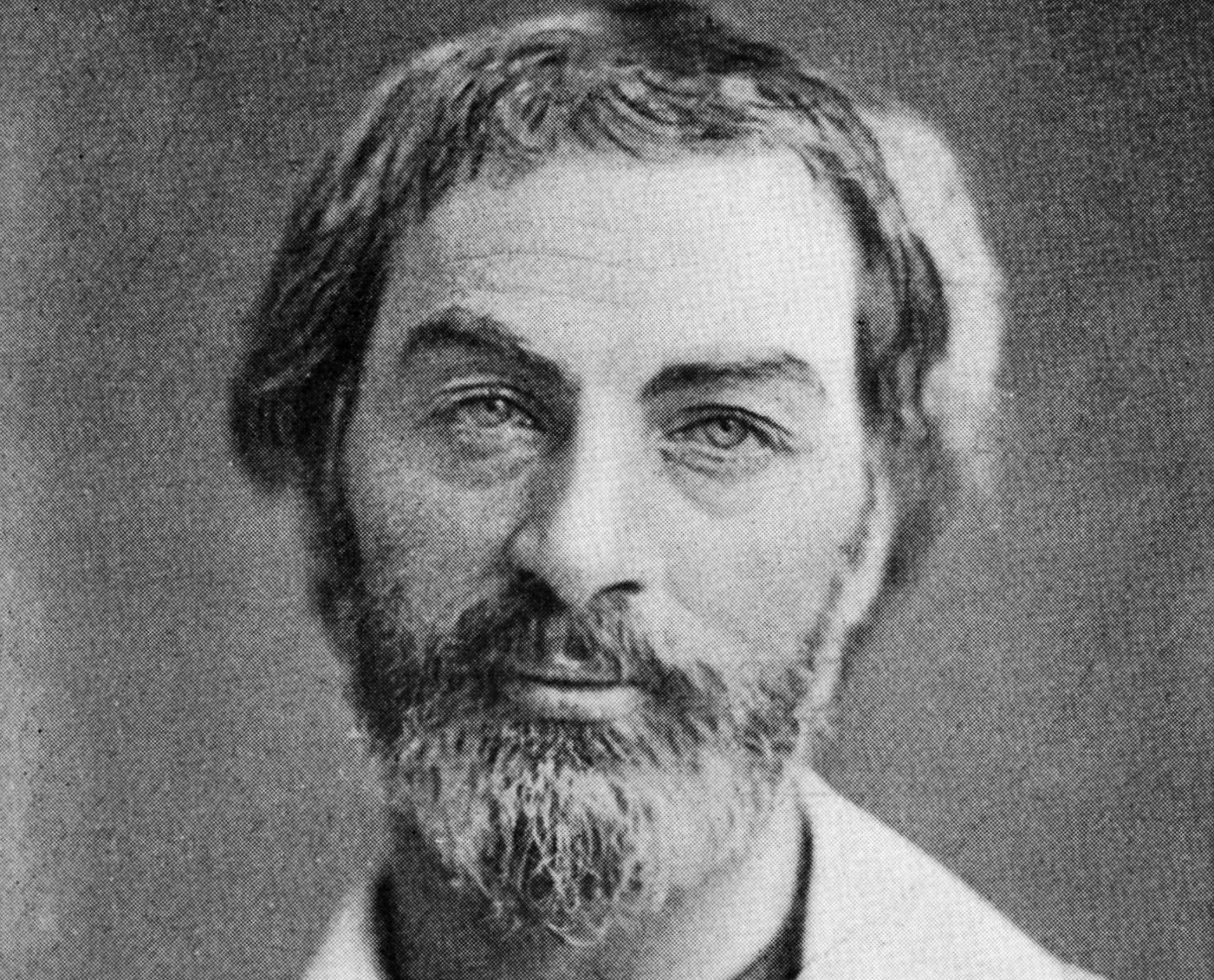 Dodd, Mead and Co, Wikimedia Commons
Dodd, Mead and Co, Wikimedia Commons
8. He Was Covered In Feathers
For the alleged act with a pupil, the good people of Southold, New York chased Whitman out of town. But not before doling out some justice of their own. Allegedly, they tarred and feathered Whitman as punishment for his wrongdoing. But the only problem is, some parts of this story don't quite add up.
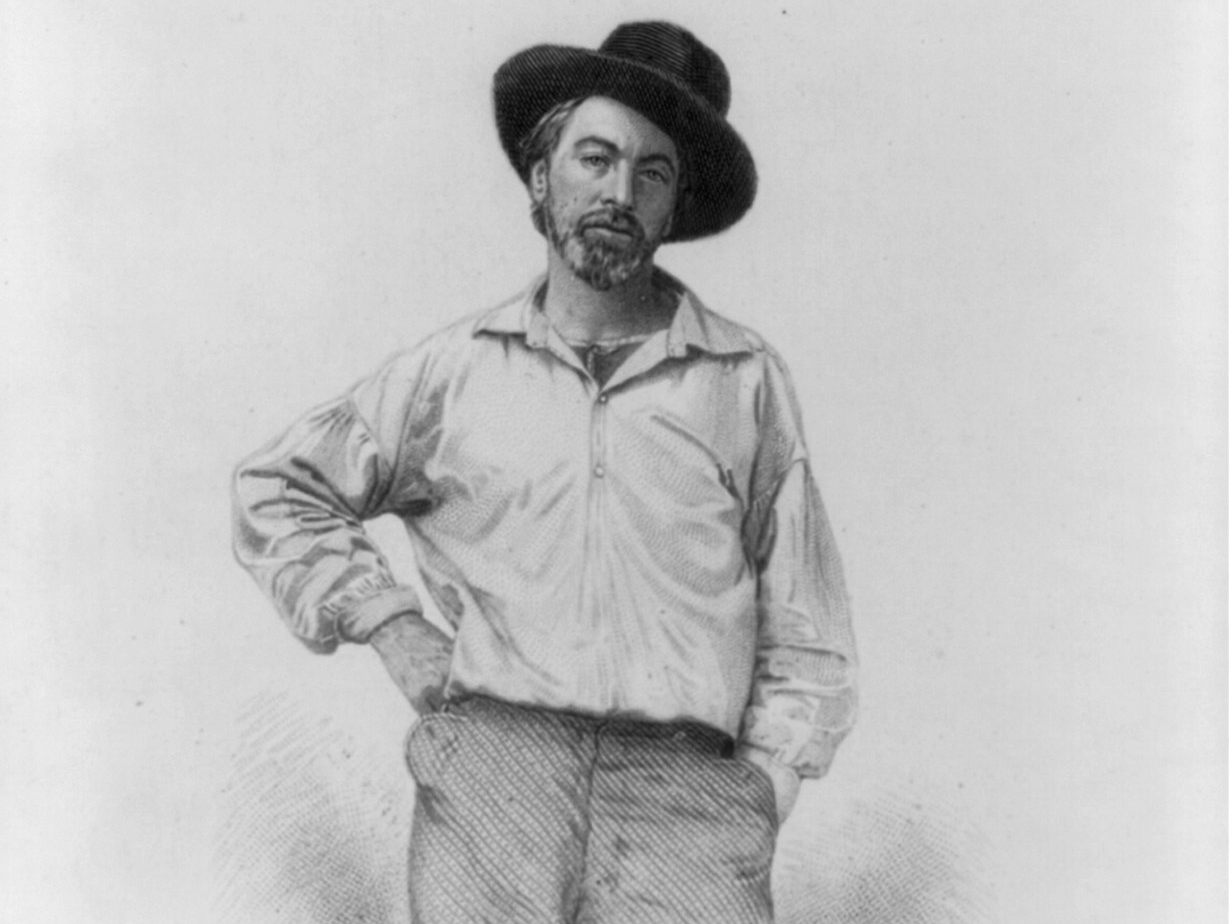 Hollyer Samuel, Wikimedia Commons
Hollyer Samuel, Wikimedia Commons
9. He Was Totally Innocent—Kind Of
It’s entirely possible that the story of Whitman’s tarring and feathering in Southold, New York was a fabrication concocted by his detractors. Notably, Whitman frequently vacationed in the town that had supposedly chased him away, even after the alleged incident.
By while the tar and feathers may be apocryphal, the accusations are a lot harder to dismiss.
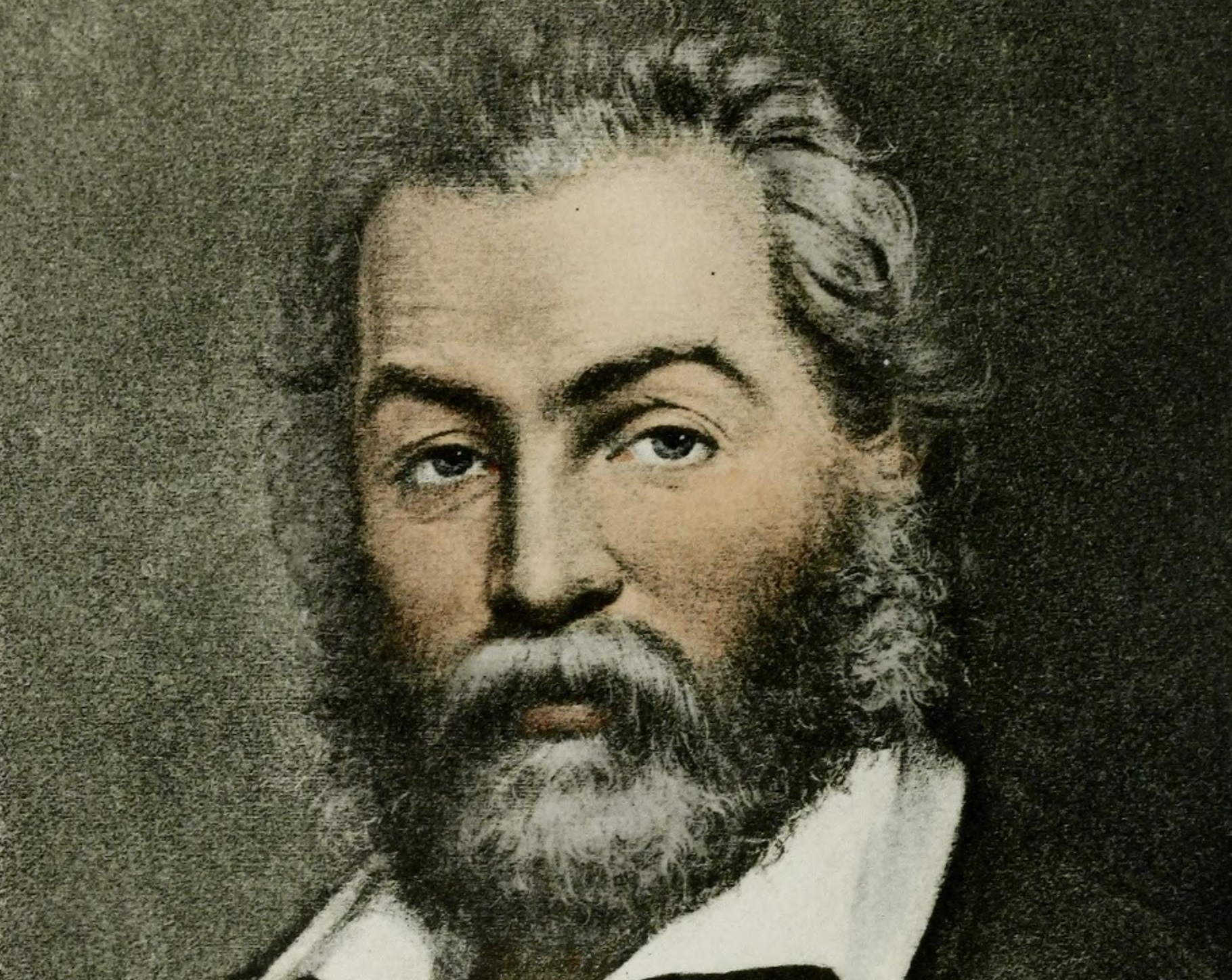 Walt Whitman, Wikimedia Commons
Walt Whitman, Wikimedia Commons
10. He Wrote His Confession
A few years after the “Southold episode”, Whitman published a potentially incriminating short story called, The Child’s Champion. In the story, Whitman “marvels” at the “beauty” of a young 13-year old boy. He wrote, “we meet with young beings, strangers, who seem to touch the fountains of our love, and draw forth their swelling waters”.
That was not a particularly subtle euphemism.

